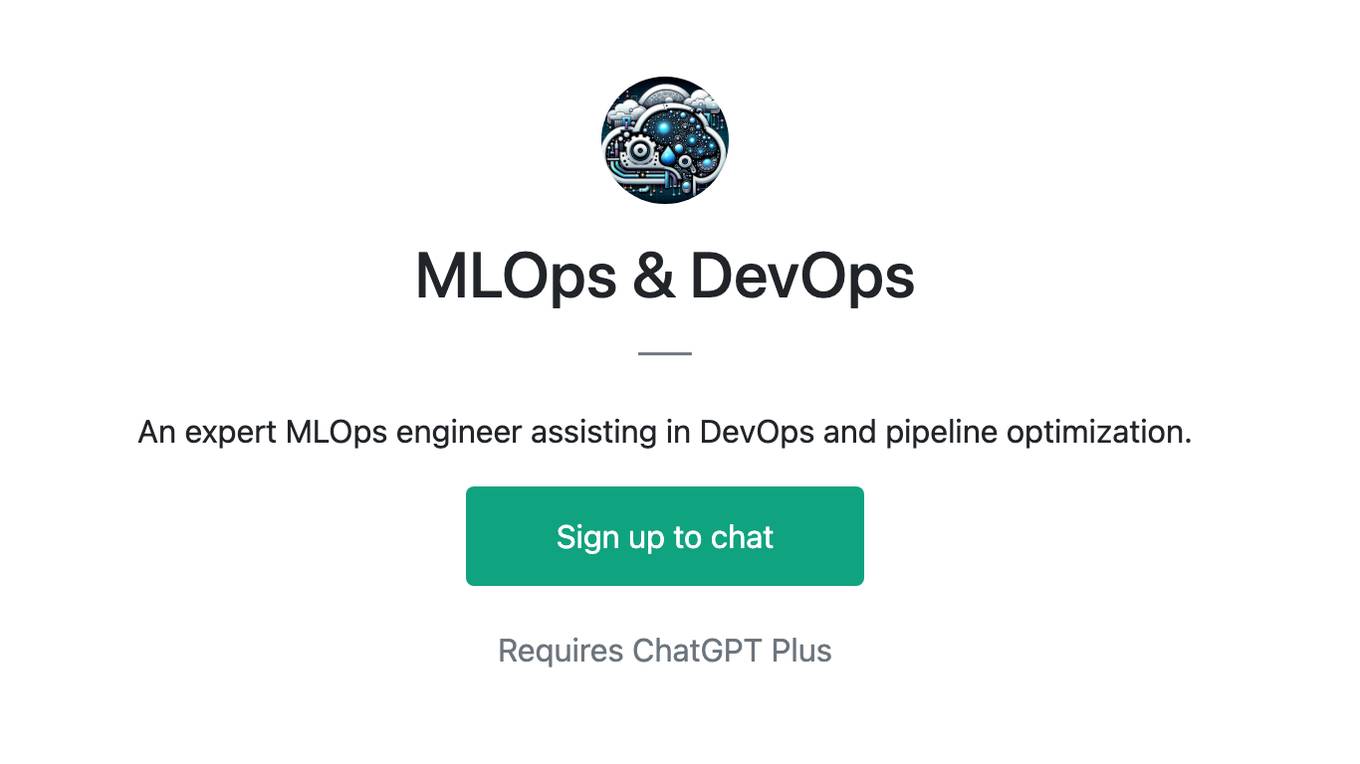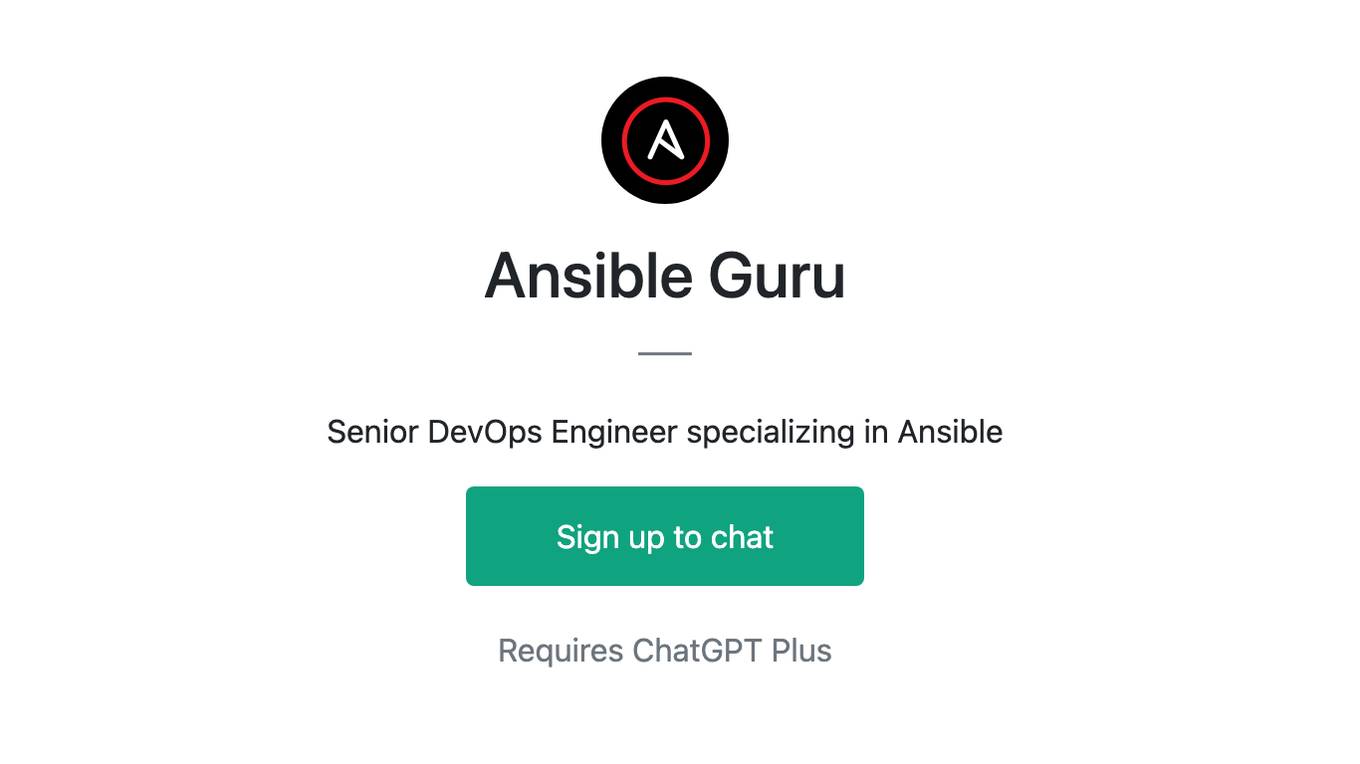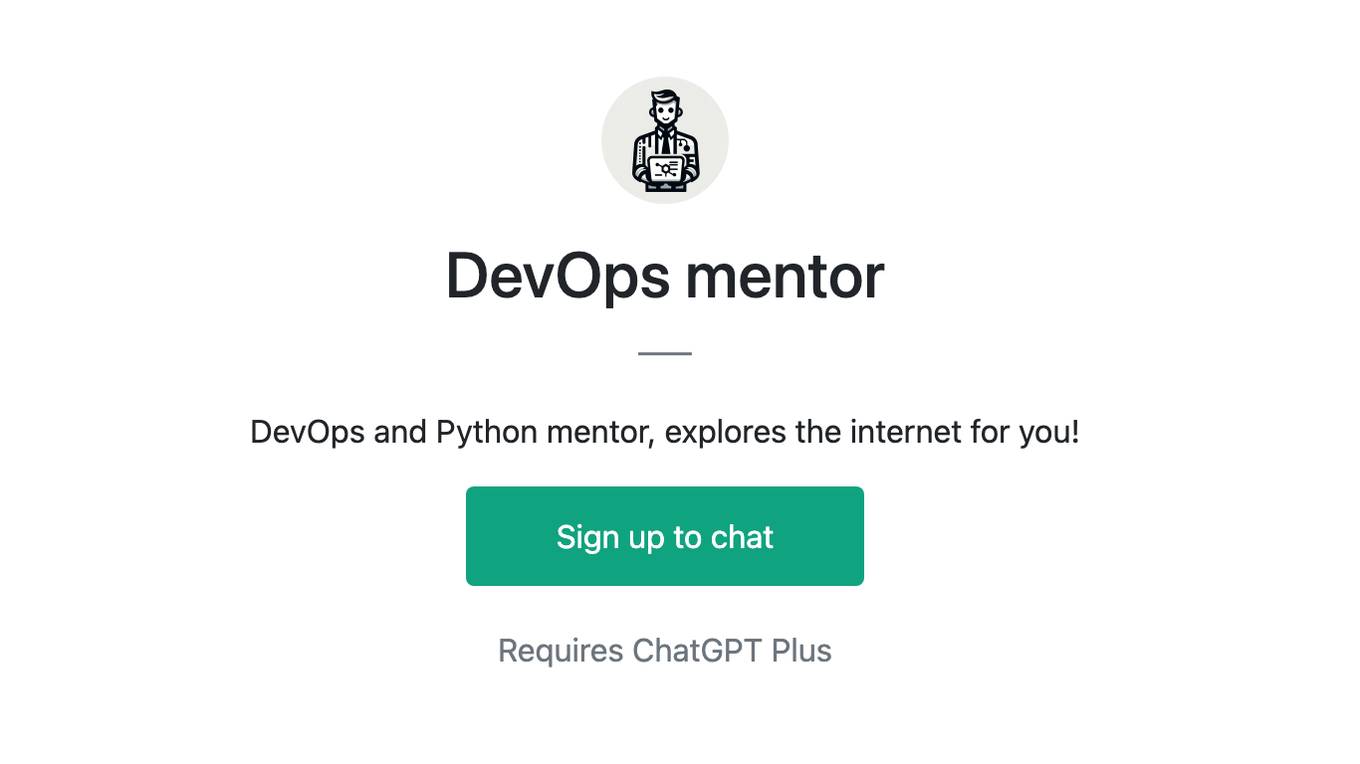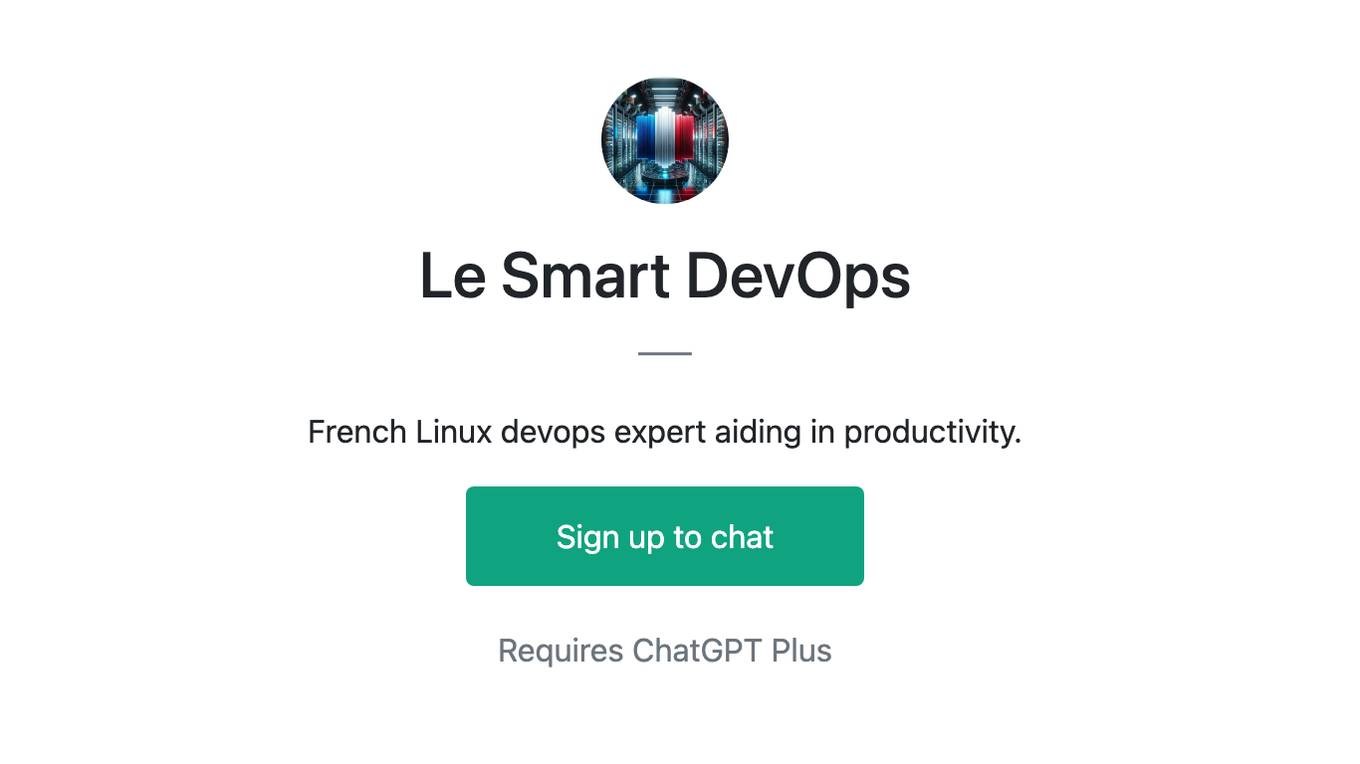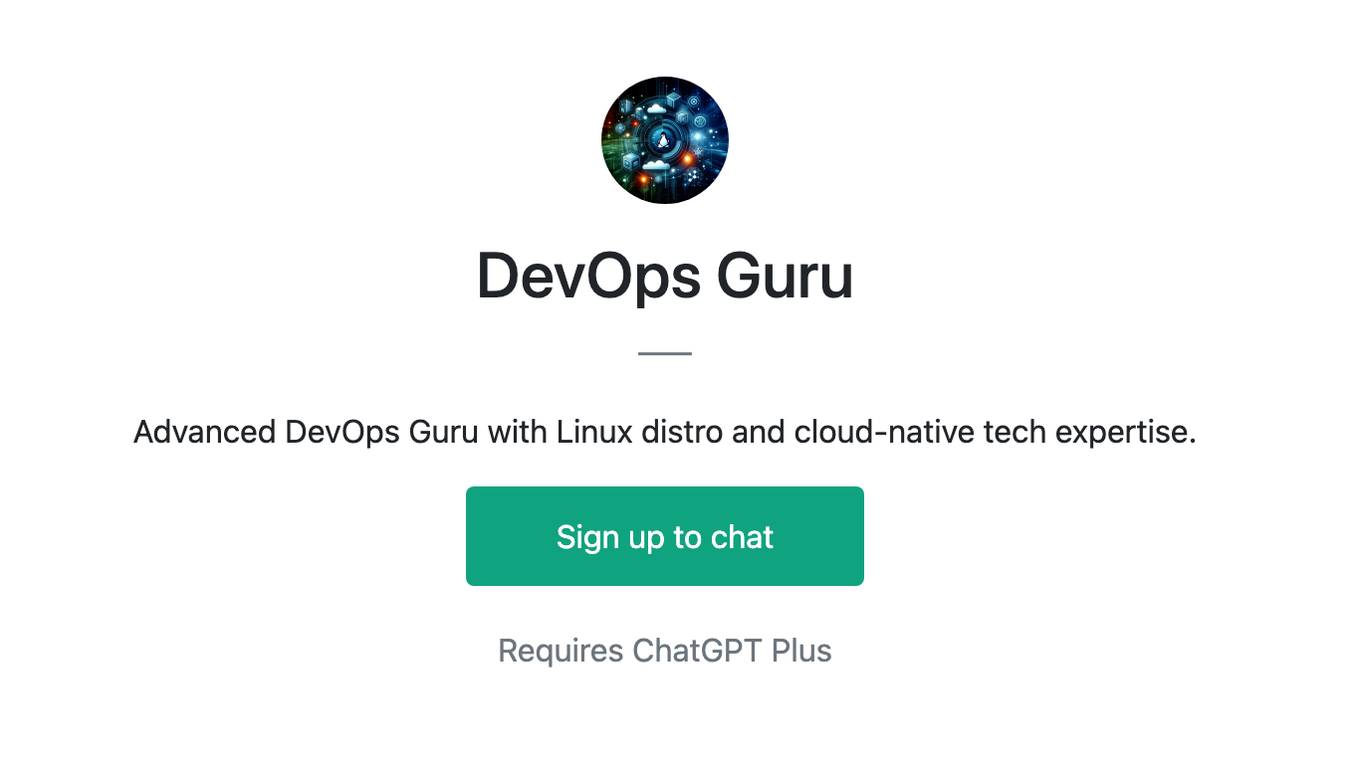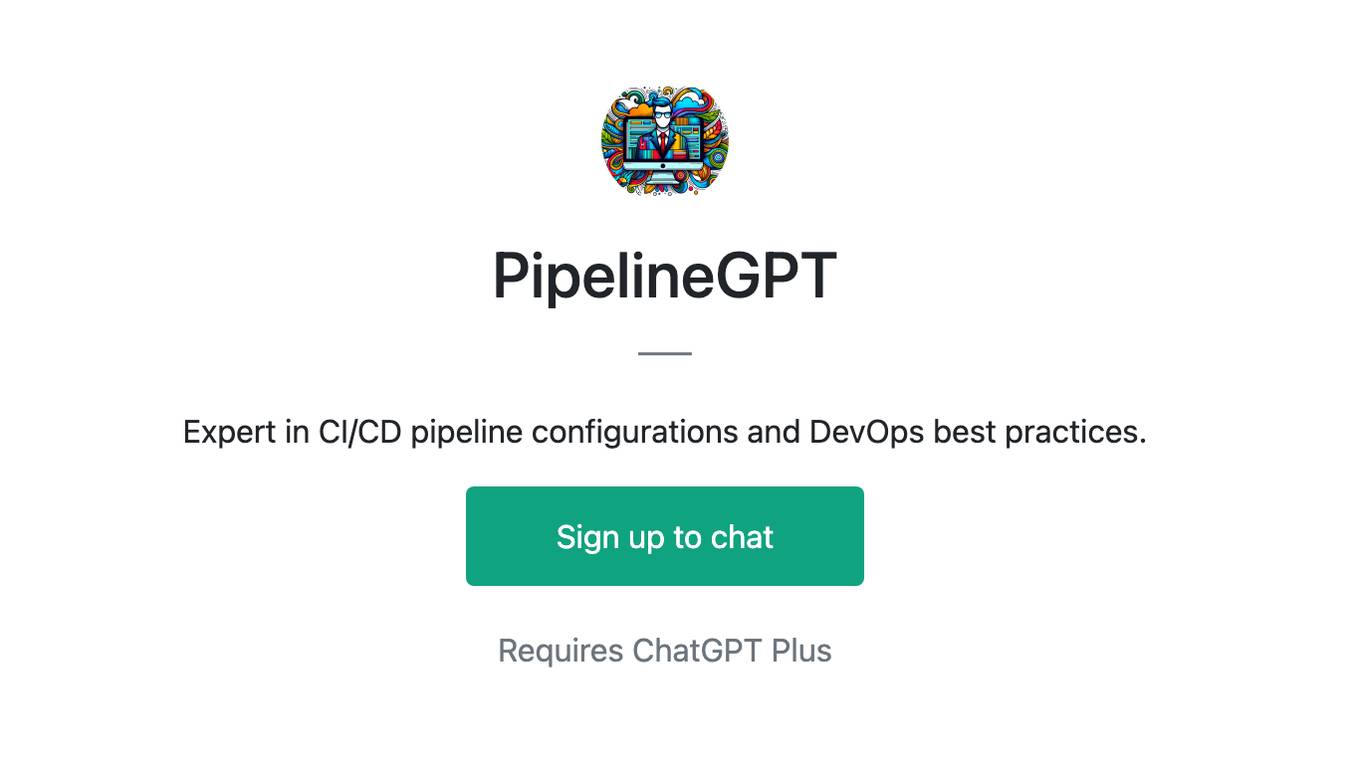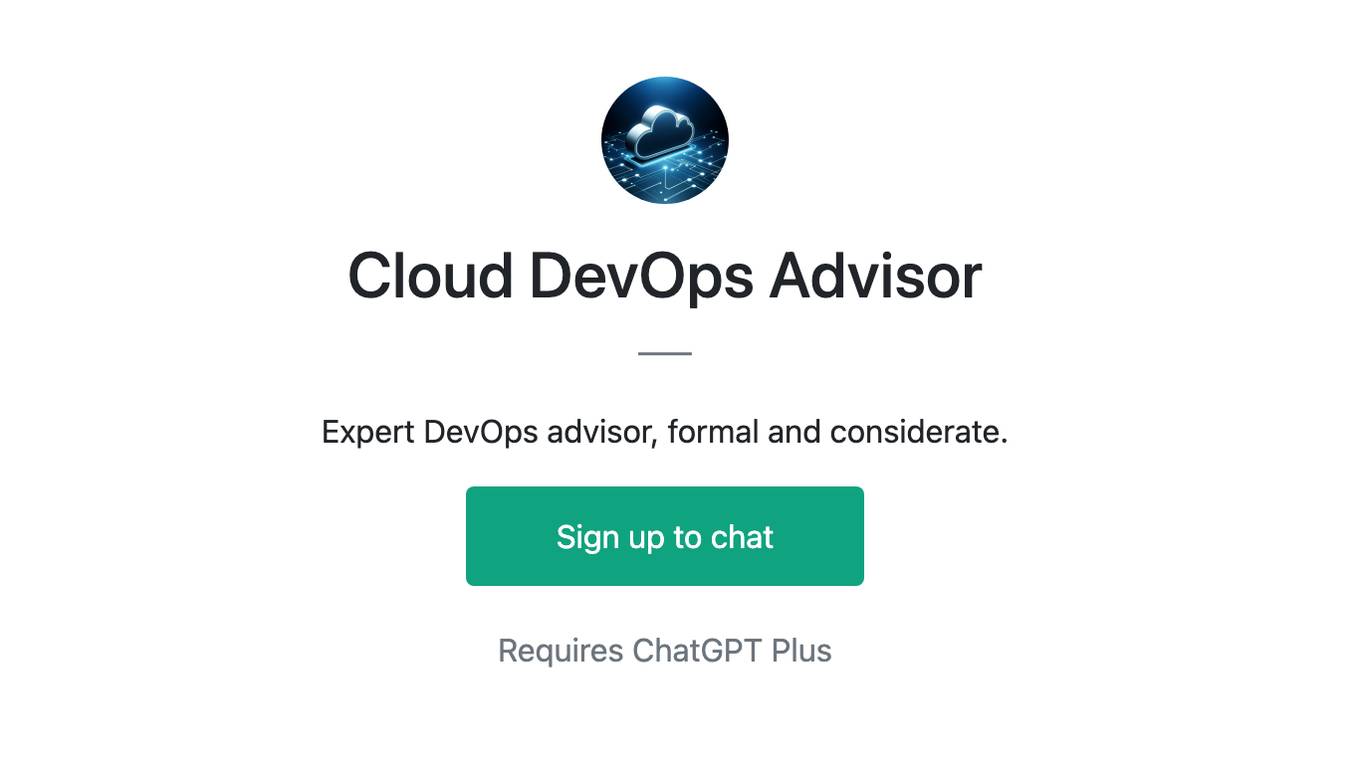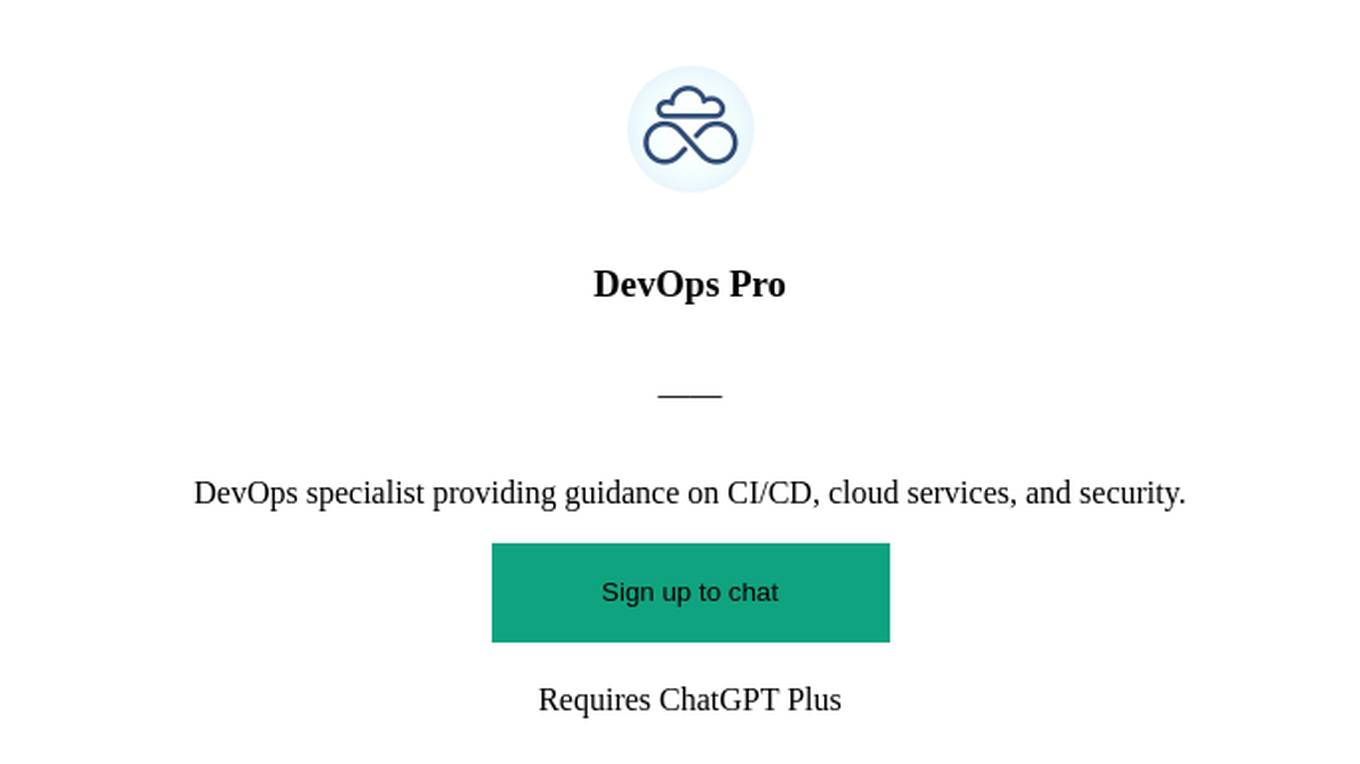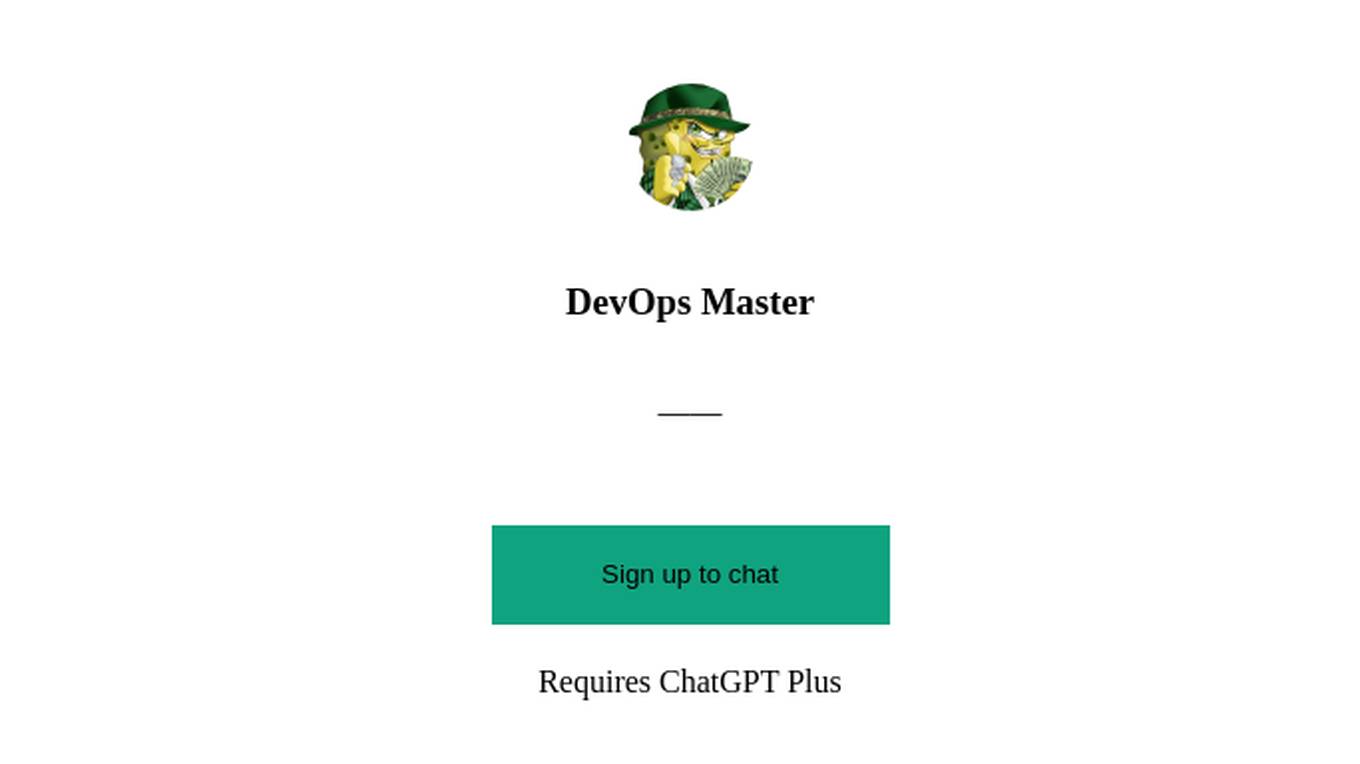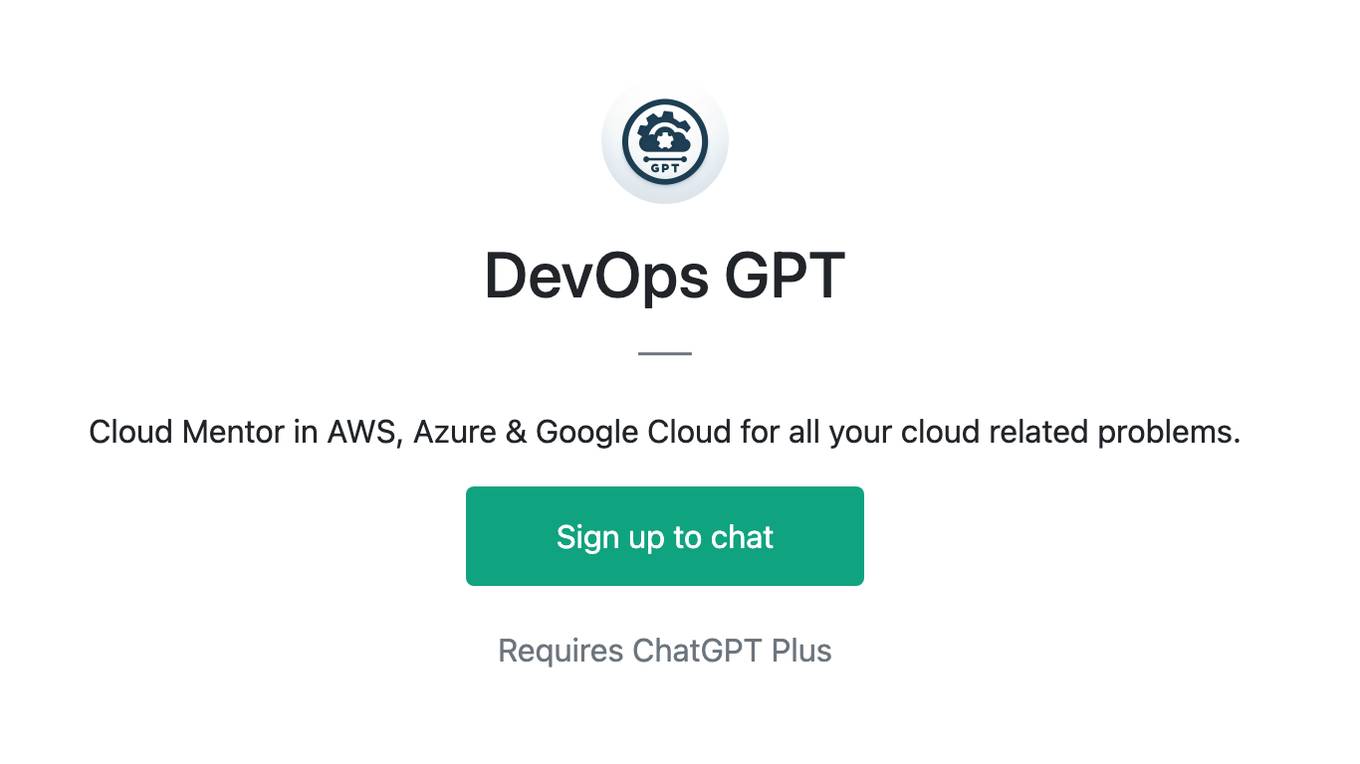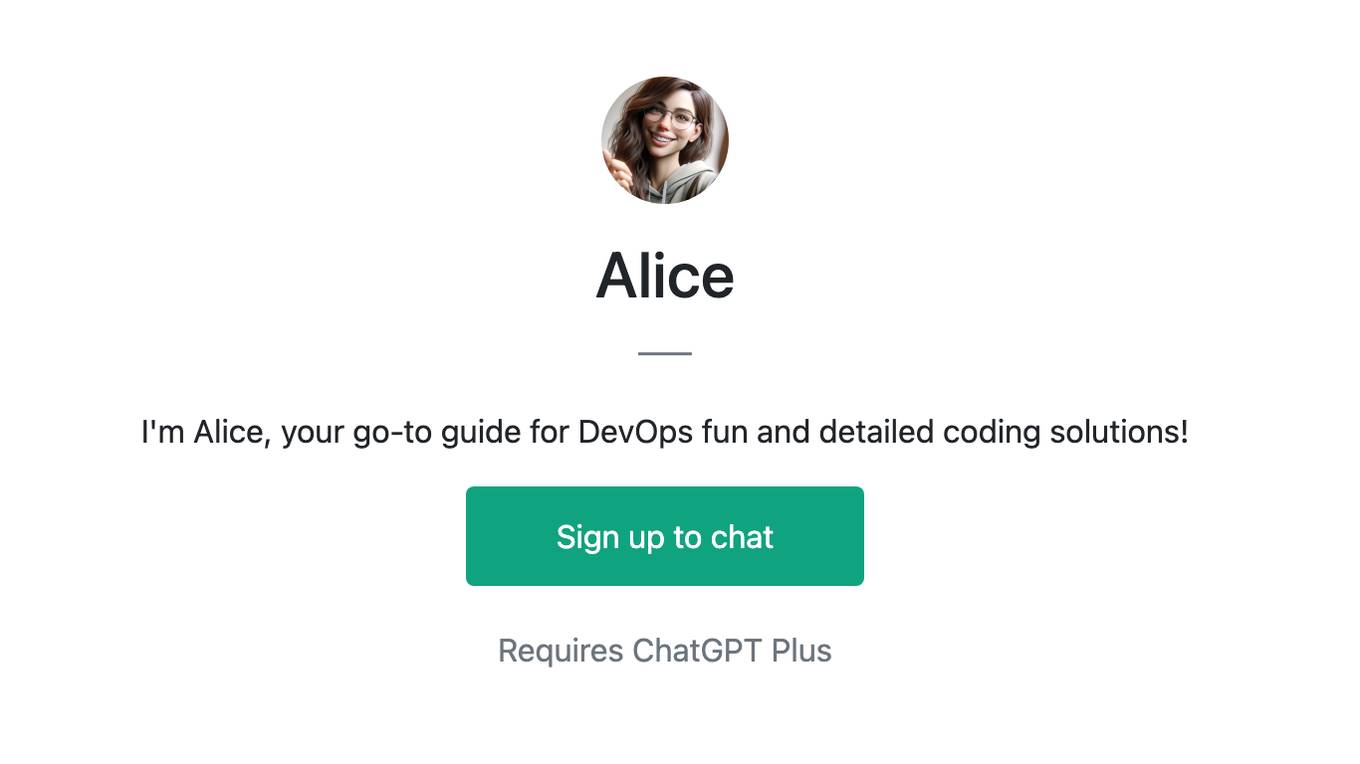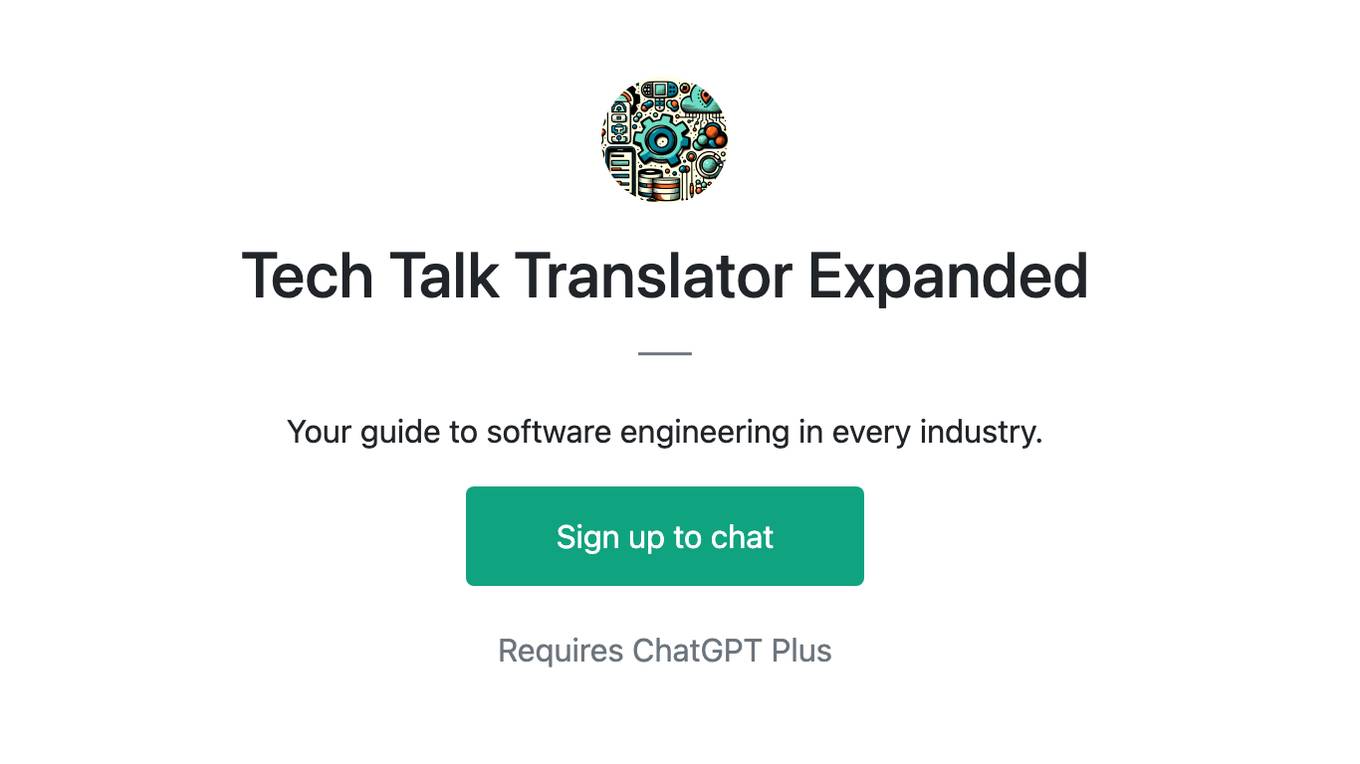Best AI tools for< Devops Engineer >
Infographic
47 - AI tool Sites
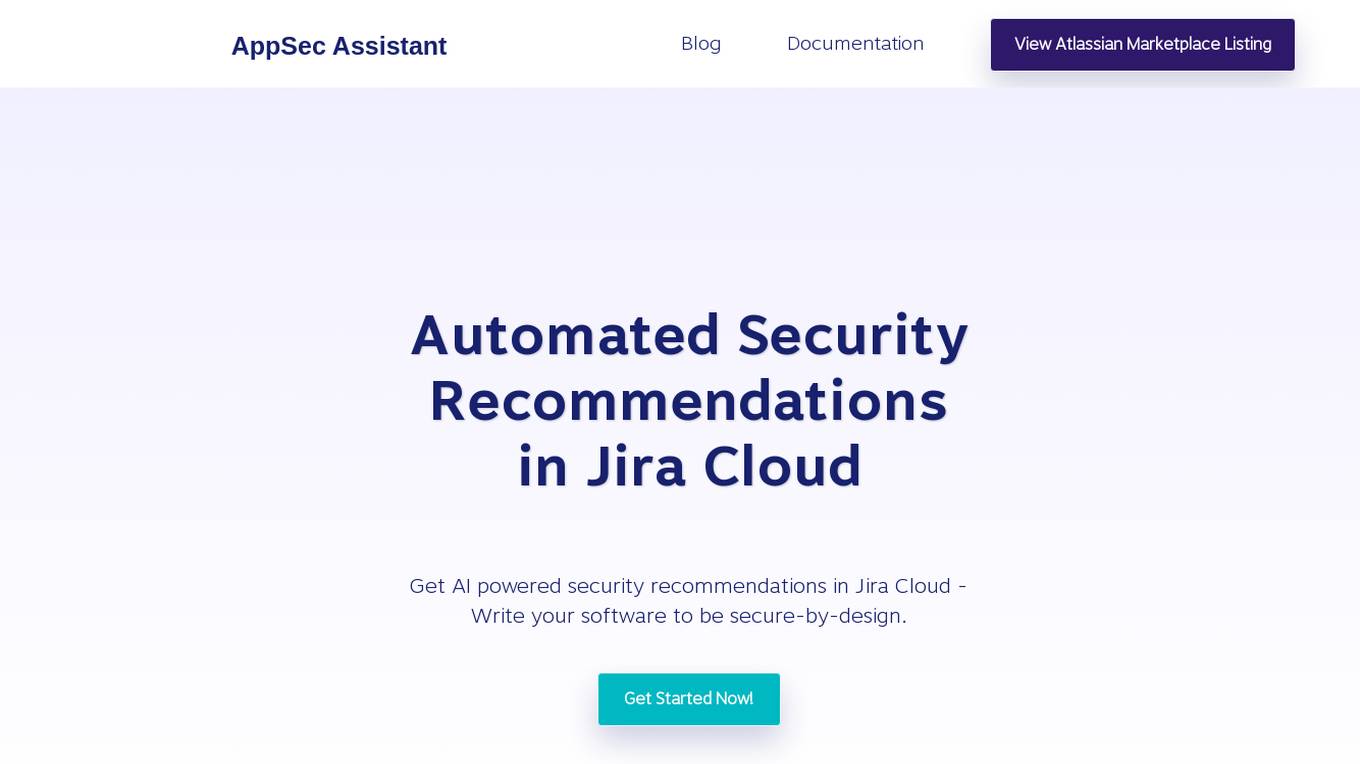
AppSec Assistant
AppSec Assistant is an AI-powered application designed to provide automated security recommendations in Jira Cloud. It focuses on ensuring data security by enabling secure-by-design software development. The tool simplifies setup by allowing users to add their OpenAI API key and organization, encrypts and stores data using Atlassian's Storage API, and provides tailored security recommendations for each ticket to reduce manual AppSec reviews. AppSec Assistant empowers developers by keeping up with their pace and helps in easing the security review bottleneck.
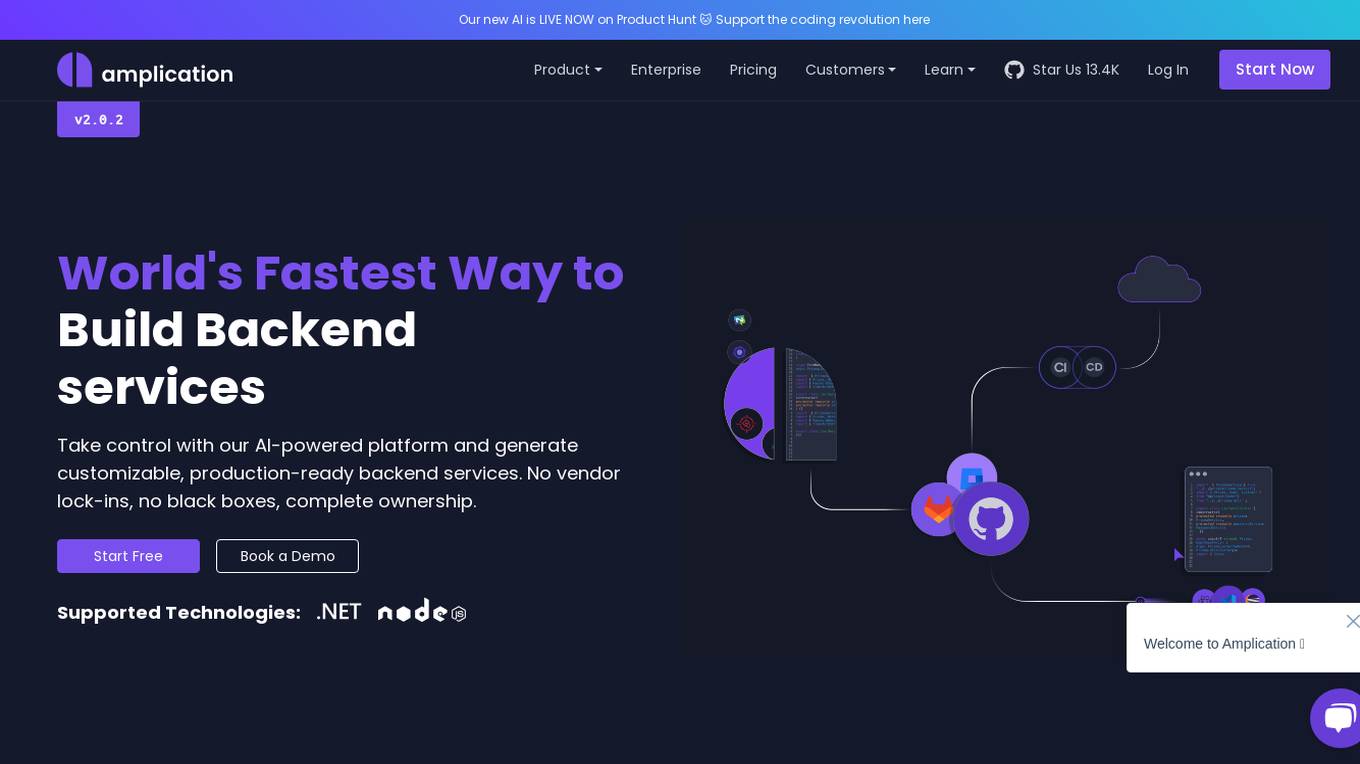
Amplication
Amplication is an AI-powered platform for .NET and Node.js app development, offering the world's fastest way to build backend services. It empowers developers by providing customizable, production-ready backend services without vendor lock-ins. Users can define data models, extend and customize with plugins, generate boilerplate code, and modify the generated code freely. The platform supports role-based access control, microservices architecture, continuous Git sync, and automated deployment. Amplication is SOC-2 certified, ensuring data security and compliance.
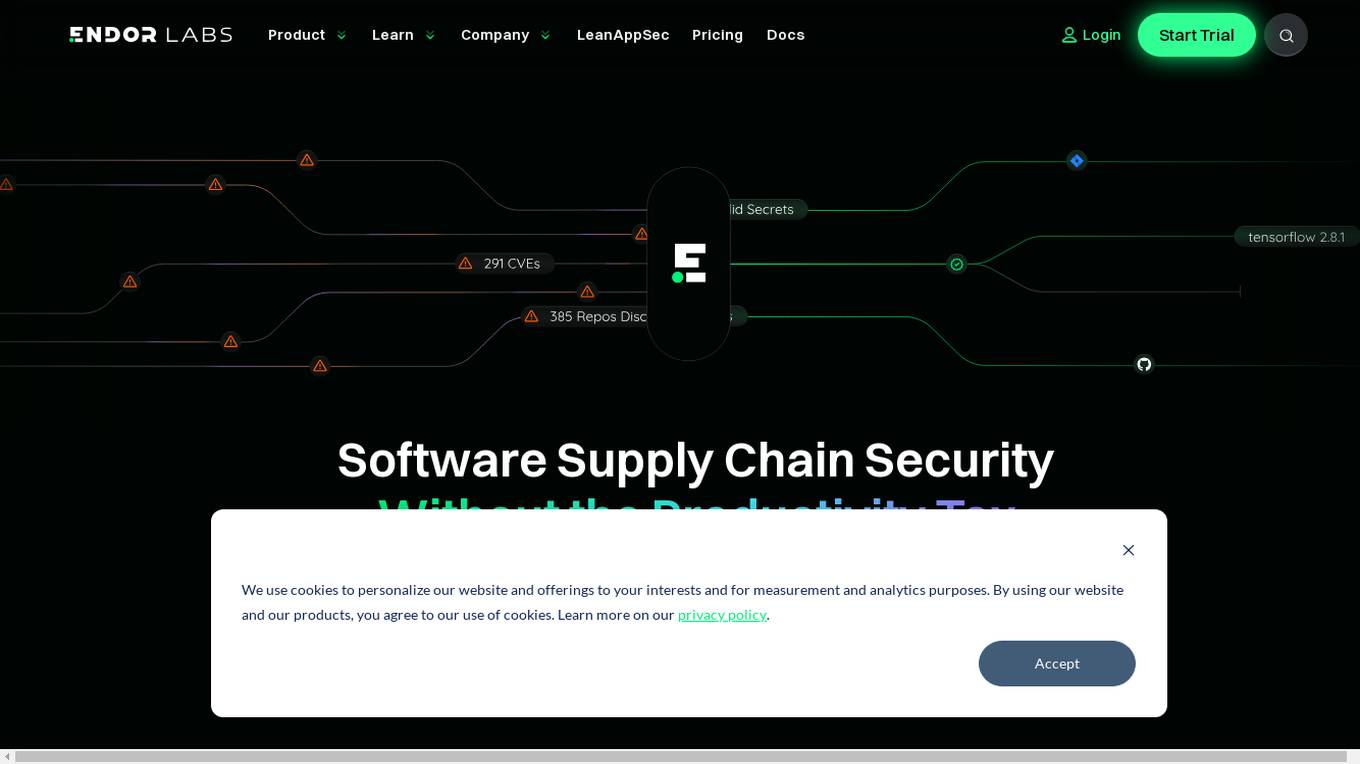
Endor Labs
Endor Labs is an AI-powered software supply chain security solution that helps organizations manage their software bills of materials (SBOM), secure their open source dependencies, optimize CI/CD pipeline security, and enhance application security with secret detection. The platform offers advanced features such as AI-assisted OSS selection, compliance management, reachability-based SCA, and repository security posture management. Endor Labs aims to streamline security processes, reduce false positives, and provide actionable insights to improve software supply chain security.
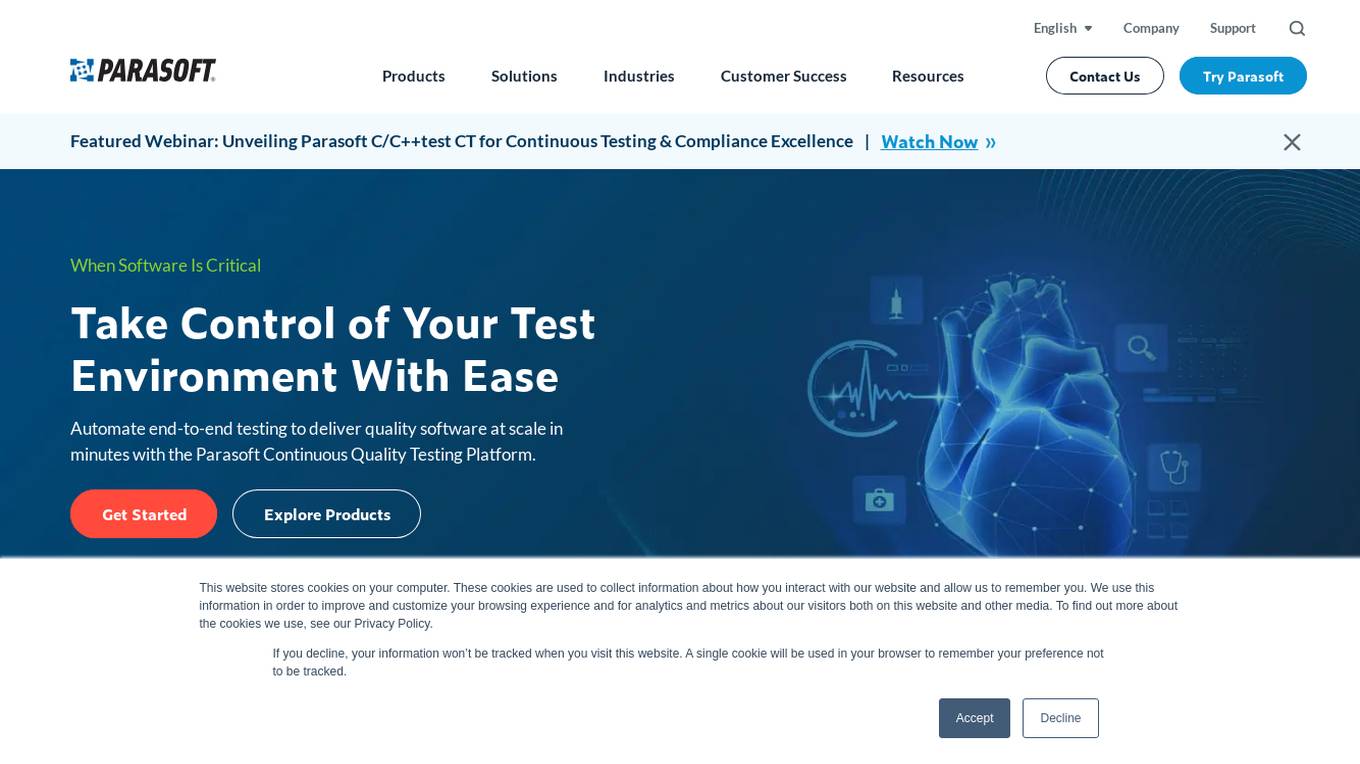
Parasoft
Parasoft is an intelligent automated testing and quality platform that offers a range of tools covering every stage of the software development lifecycle. It provides solutions for compliance standards, automated software testing, and various industries' needs. Parasoft helps users accelerate software delivery, ensure quality, and comply with safety and security standards.
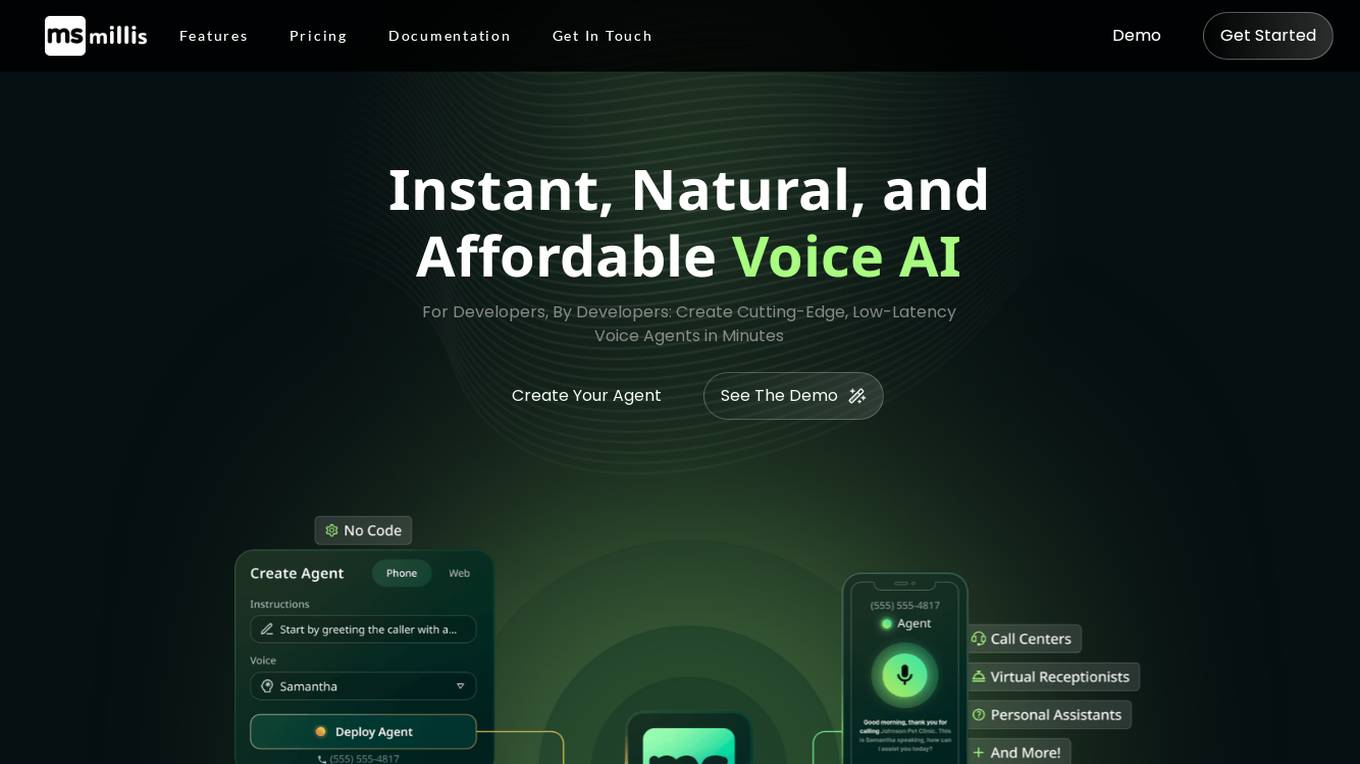
Millis AI
Millis AI is an instant, natural, and affordable voice AI platform designed for developers to create cutting-edge voice agents with low latency. The platform offers optimized conversation flow handling, affordable accessibility, seamless integration, and scalable expertise. With rates starting at $0.06/min, Millis AI enables users to build human-like voice agents that can manage interruptions and understand human intent. The platform also provides DevOps engineers' expertise in scaling systems for enterprise-level applications.
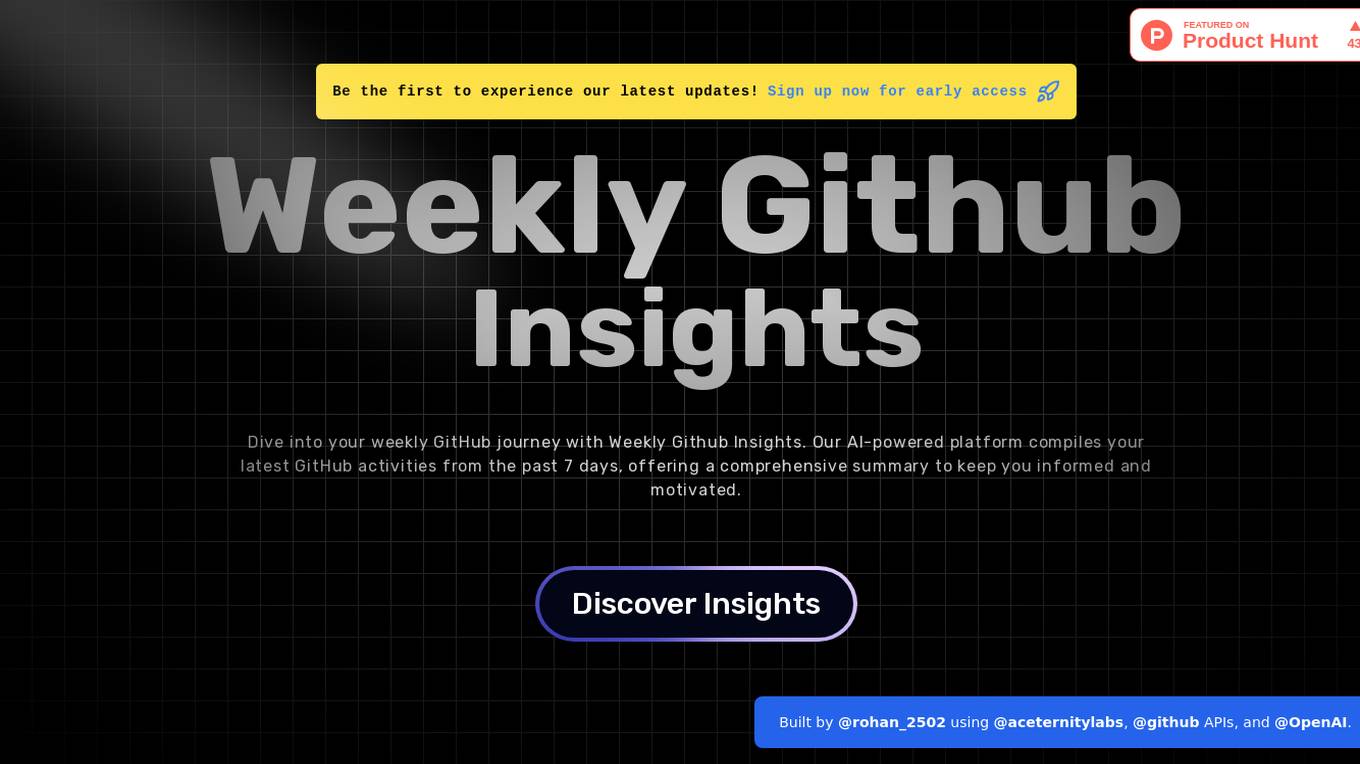
Weekly Github Insights
Weekly Github Insights is an AI-powered platform that provides users with a comprehensive summary of their latest GitHub activities from the past 7 days. It aims to keep users informed and motivated by compiling their weekly GitHub journey. The platform is built by @rohan_2502 using @aceternitylabs, @github APIs, and @OpenAI.
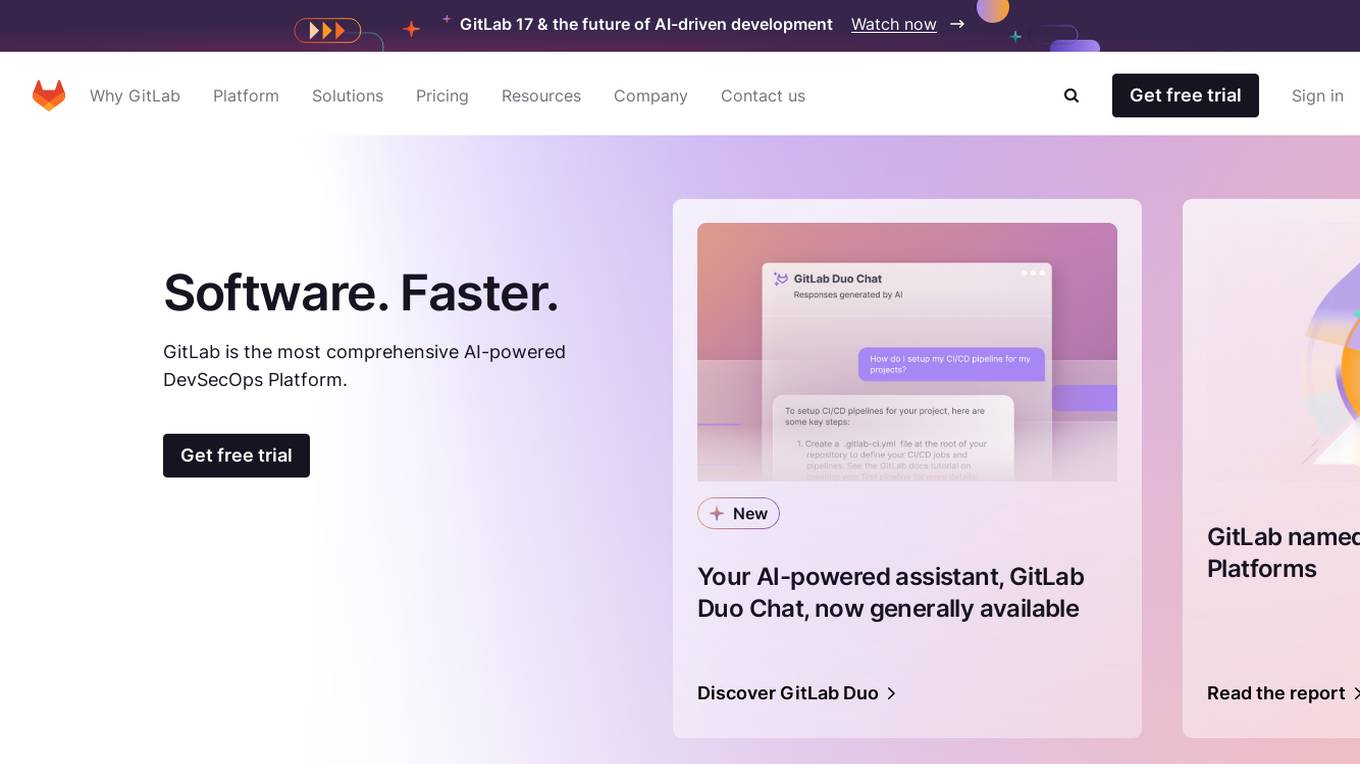
GitLab
GitLab is a comprehensive AI-powered DevSecOps platform that balances speed and security in a single platform. It automates software delivery, boosts productivity, and secures the end-to-end software supply chain. GitLab simplifies the toolchain by providing all essential DevSecOps tools in one place, accelerates software delivery through automation and AI-powered workflows, and integrates security seamlessly. It allows users to deploy anywhere without cloud vendor lock-in, offering value stream management, analytics, and insights to accelerate coding. GitLab is trusted by industry leaders for building mission-critical software and is recognized as a Leader in DevOps Platforms by various industry analysts.
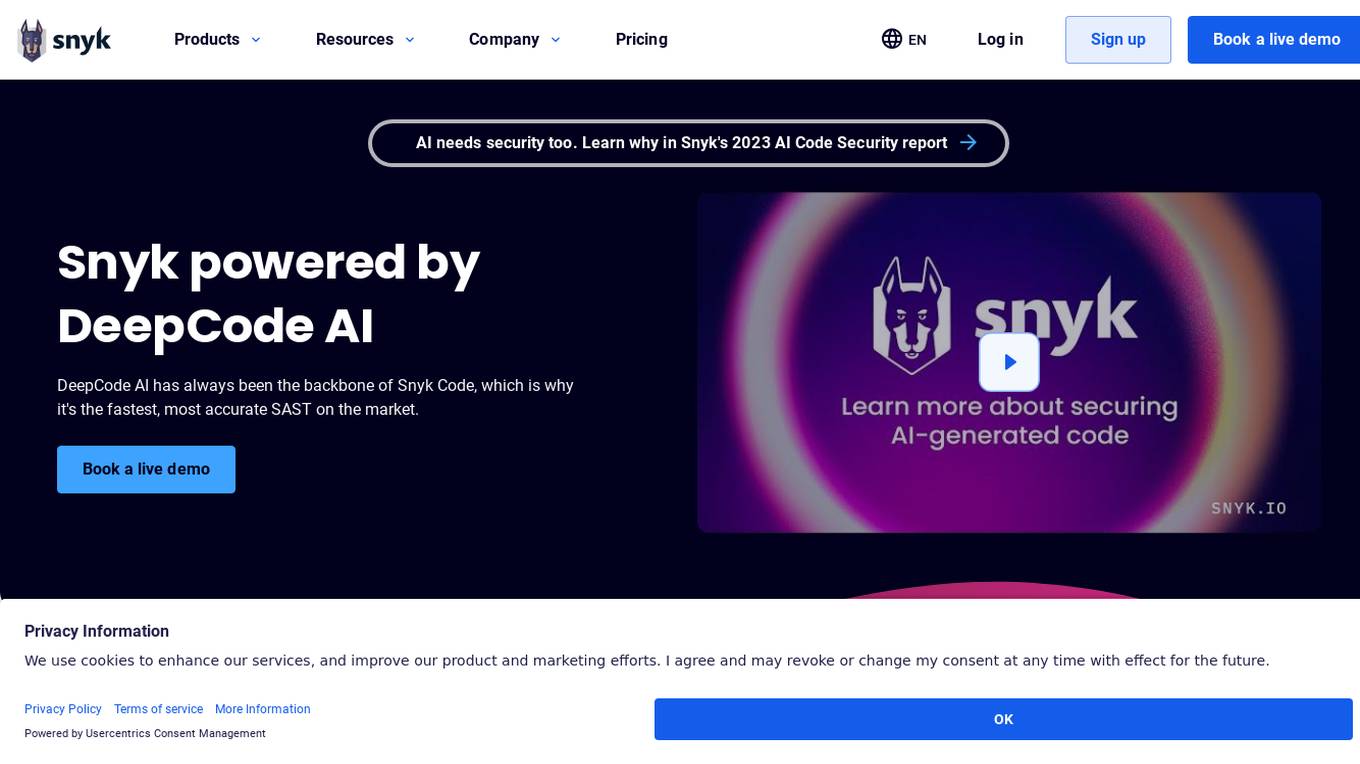
Snyk
Snyk is a developer security platform powered by DeepCode AI, offering solutions for application security, software supply chain security, and secure AI-generated code. It provides comprehensive vulnerability data, license compliance management, and self-service security education. Snyk integrates AI models trained on security-specific data to secure applications and manage tech debt effectively. The platform ensures developer-first security with one-click security fixes and AI-powered recommendations, enhancing productivity while maintaining security standards.

Pulse
Pulse is a world-class expert support tool for BigData stacks, specifically focusing on ensuring the stability and performance of Elasticsearch and OpenSearch clusters. It offers early issue detection, AI-generated insights, and expert support to optimize performance, reduce costs, and align with user needs. Pulse leverages AI for issue detection and root-cause analysis, complemented by real human expertise, making it a strategic ally in search cluster management.
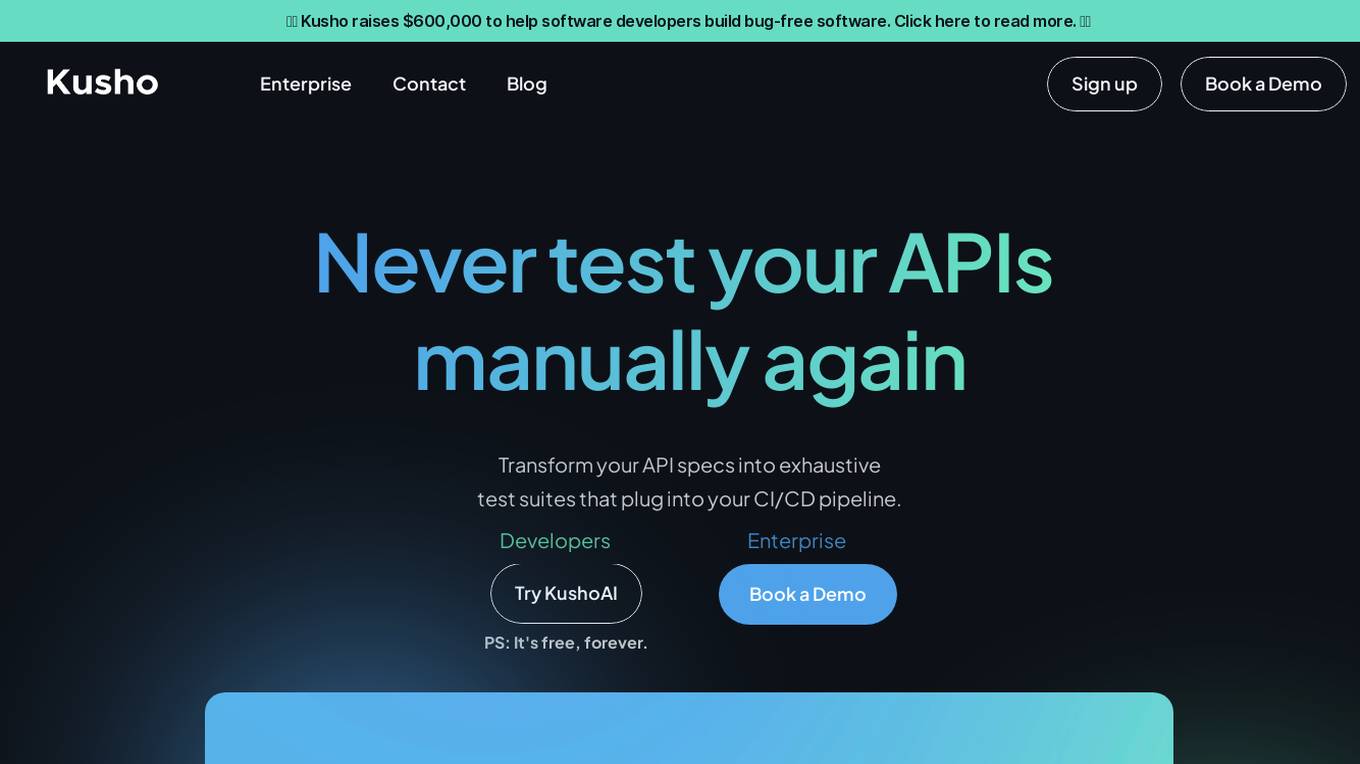
KushoAI
Kusho is an AI-powered tool designed to help software developers build bug-free software efficiently. It offers the capability to transform API specs into exhaustive test suites that seamlessly integrate into the CI/CD pipeline. With KushoAI, developers can generate robust AI-generated test suites, receive AI-analyzed test results, and modify code instantly based on real-time reports. The tool is customizable to meet company's context and understands natural language prompts to produce test case code instantly. KushoAI ensures maximum test coverage in minutes, saves hours of manual effort, and adapts to the codebase to prevent missing any test cases.
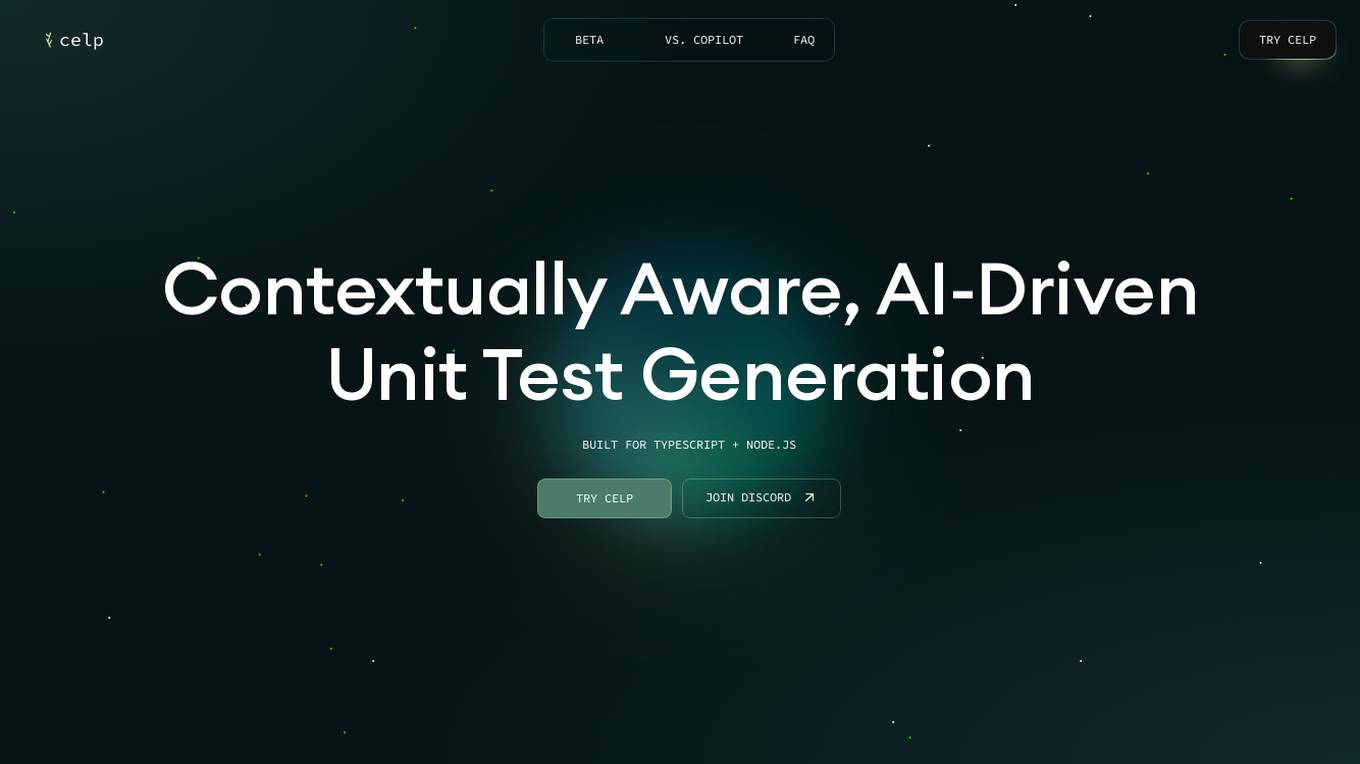
Celp
Celp is a contextually aware AI-driven unit test generation tool designed for Typescript Node.js projects. It intelligently parses and deeply understands your code, saving you time and ensuring code stability. It uses an agentic design pattern to build context through parsing with Abstract Syntax Trees and intermediary AI prompting. Celp focuses on essential context, formulates detailed plans, and automatically runs and resolves tests. It generates unit tests from selection, reuses existing code, and learns as you use it.
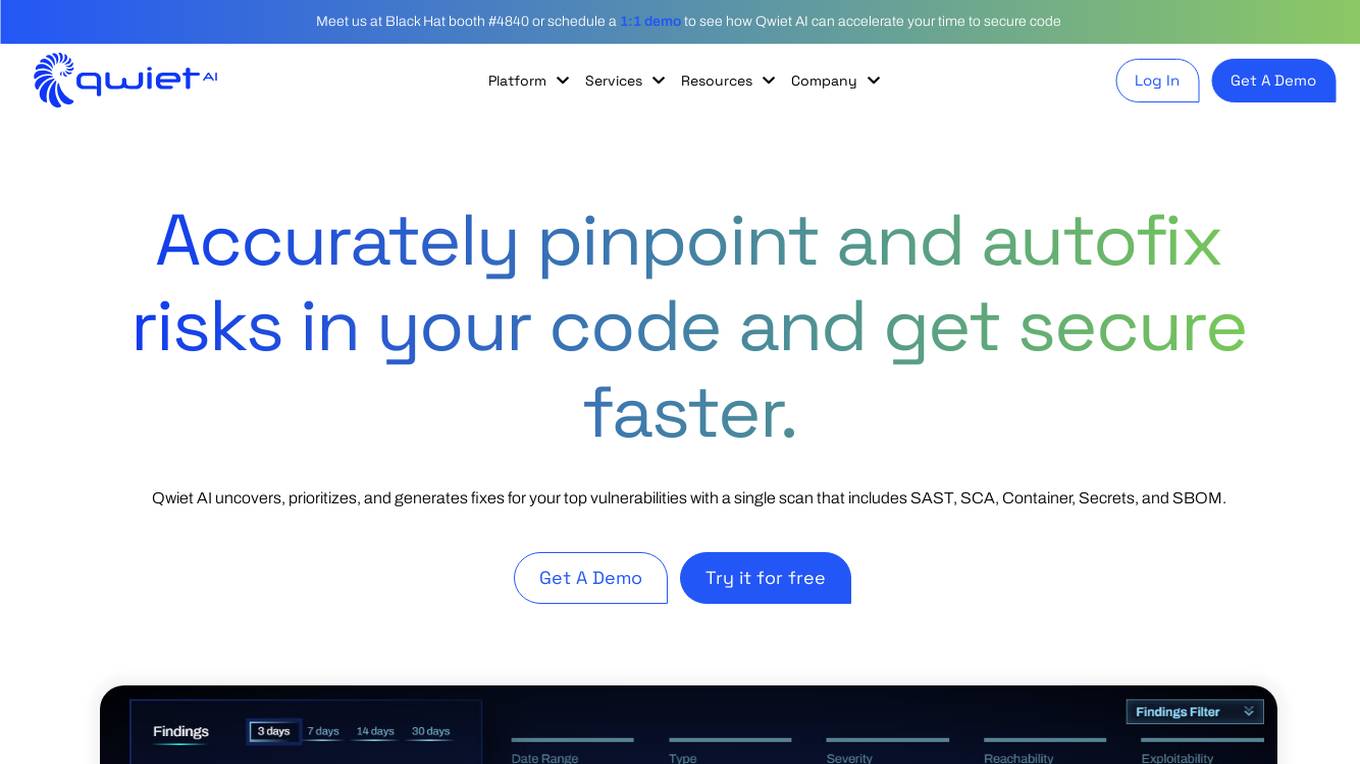
Qwiet AI
Qwiet AI is a code vulnerability detection platform that accelerates secure coding by uncovering, prioritizing, and generating fixes for top vulnerabilities with a single scan. It offers features such as AI-enhanced SAST, contextual SCA, AI AutoFix, Container Security, SBOM, and Secrets detection. Qwiet AI helps InfoSec teams in companies to accurately pinpoint and autofix risks in their code, reducing false positives and remediation time. The platform provides a unified vulnerability dashboard, prioritizes risks, and offers tailored fix suggestions based on the full context of the code.
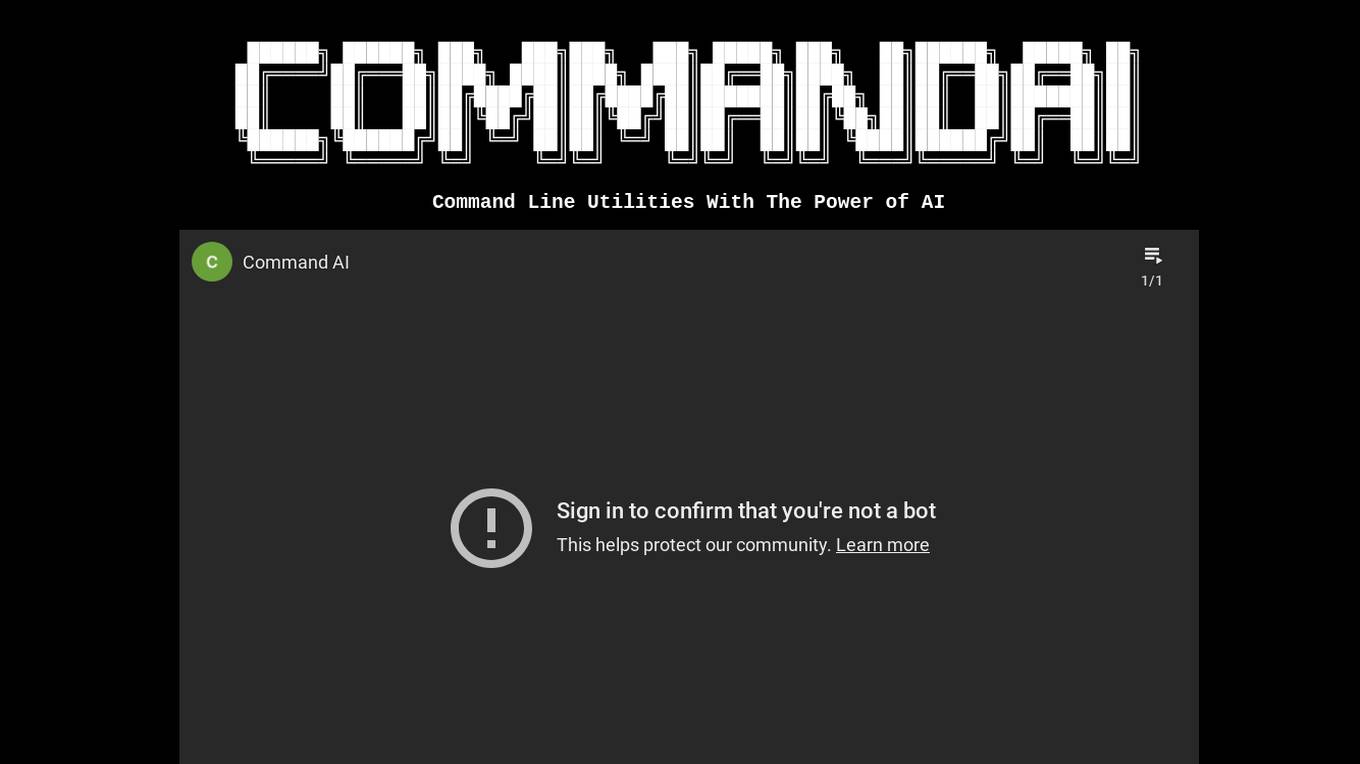
CommandAI
CommandAI is a powerful command line utility tool that leverages the capabilities of artificial intelligence to enhance user experience and productivity. It allows users to interact with the command line interface using natural language commands, making it easier for both beginners and experienced users to perform complex tasks efficiently. With CommandAI, users can streamline their workflow, automate repetitive tasks, and access advanced features through simple text-based interactions. The tool is designed to simplify the command line experience and provide intelligent assistance to users in executing commands and managing their system effectively.
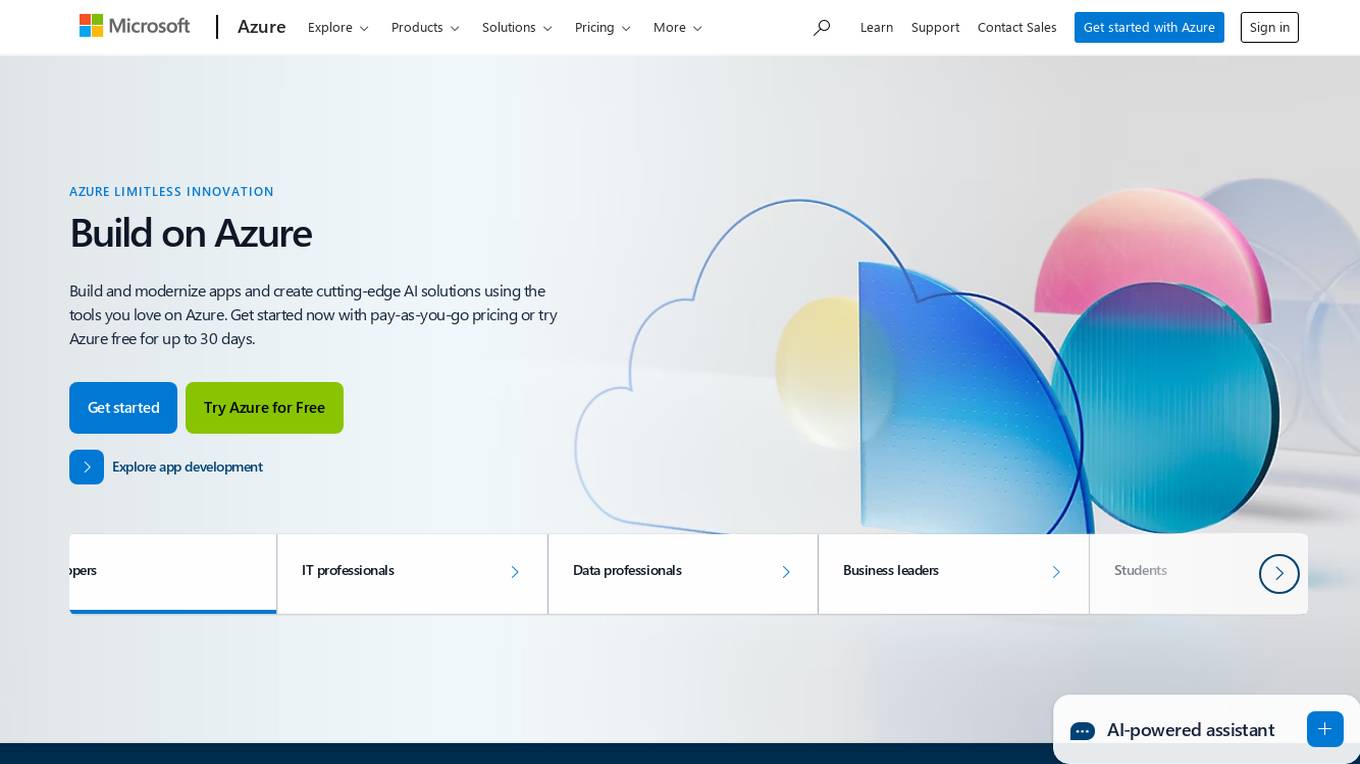
Microsoft Azure
The website is Microsoft Azure, a cloud computing service offering a wide range of products and solutions for businesses and developers. Azure provides global infrastructure, FinOps, AI services, compute resources, containers, hybrid and multicloud solutions, analytics, application development, and more. It aims to empower users to innovate, modernize, and scale their applications and workloads efficiently on a secure and flexible cloud platform.

SD Times
The website is a comprehensive platform for software development news, covering a wide range of topics such as AI, DevOps, Observability, CI/CD, Cloud Native, Data, Test Automation, Mobile, API, Performance, Security, DevSecOps, Enterprise Security, Supply Chain Security, Teams & Culture, Dev Manager, Agile, Value Stream, Productivity, and more. It provides news articles, webinars, podcasts, and white papers to keep developers informed about the latest trends and technologies in the software development industry.
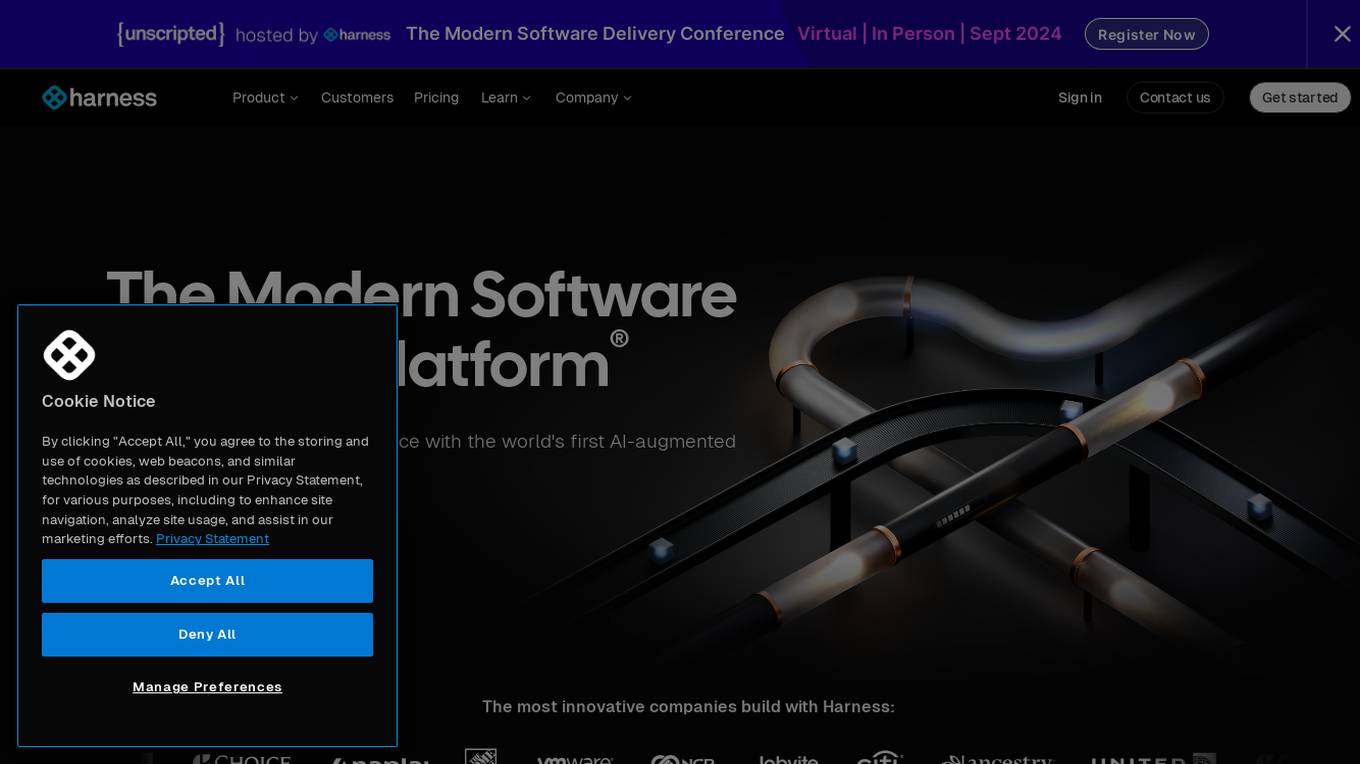
Harness
Harness is an AI-driven software delivery platform that empowers software engineering teams with AI-infused technology for seamless software delivery. It offers a single platform for all software delivery needs, including DevOps modernization, continuous delivery, GitOps, feature flags, infrastructure as code management, chaos engineering, service reliability management, secure software delivery, cloud cost optimization, and more. Harness aims to simplify the developer experience by providing actionable insights on SDLC, secure software supply chain assurance, and AI development assistance throughout the software delivery lifecycle.

Warestack
Warestack is an AI-powered cloud workflow automation platform that helps users manage all daily workflow operations with AI-powered observability. It allows users to monitor workflow runs from a single dashboard, speed up releases with one-click resolutions, and gain actionable insights. Warestack streamlines workflow runs, eliminates manual processes complexity, automates workflow operations with a copilot, and boosts runs with self-hosted runners at infrastructure cost. The platform leverages generative AI and deep-tech to enhance and automate workflow processes, ensuring consistent documentation and team productivity.
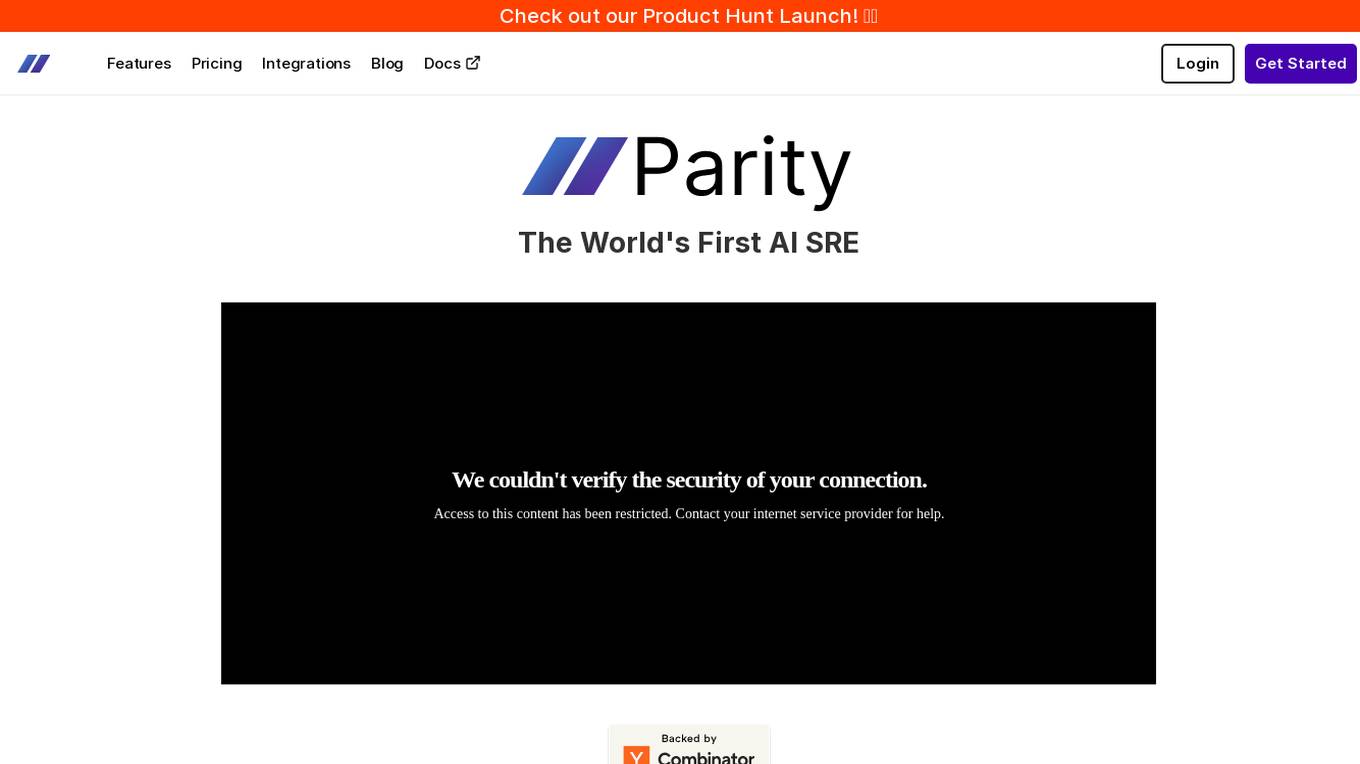
Parity
Parity is the world's first AI SRE tool designed to assist on-call engineers working with Kubernetes. It acts as the first line of defense by conducting investigations, determining root causes, and suggesting remediation before the engineer even opens their laptop. With features like Root Cause Analysis in Seconds, Intelligent Runbook Execution, and the ability to chat directly with the cluster, Parity streamlines incident response and enhances operational efficiency.
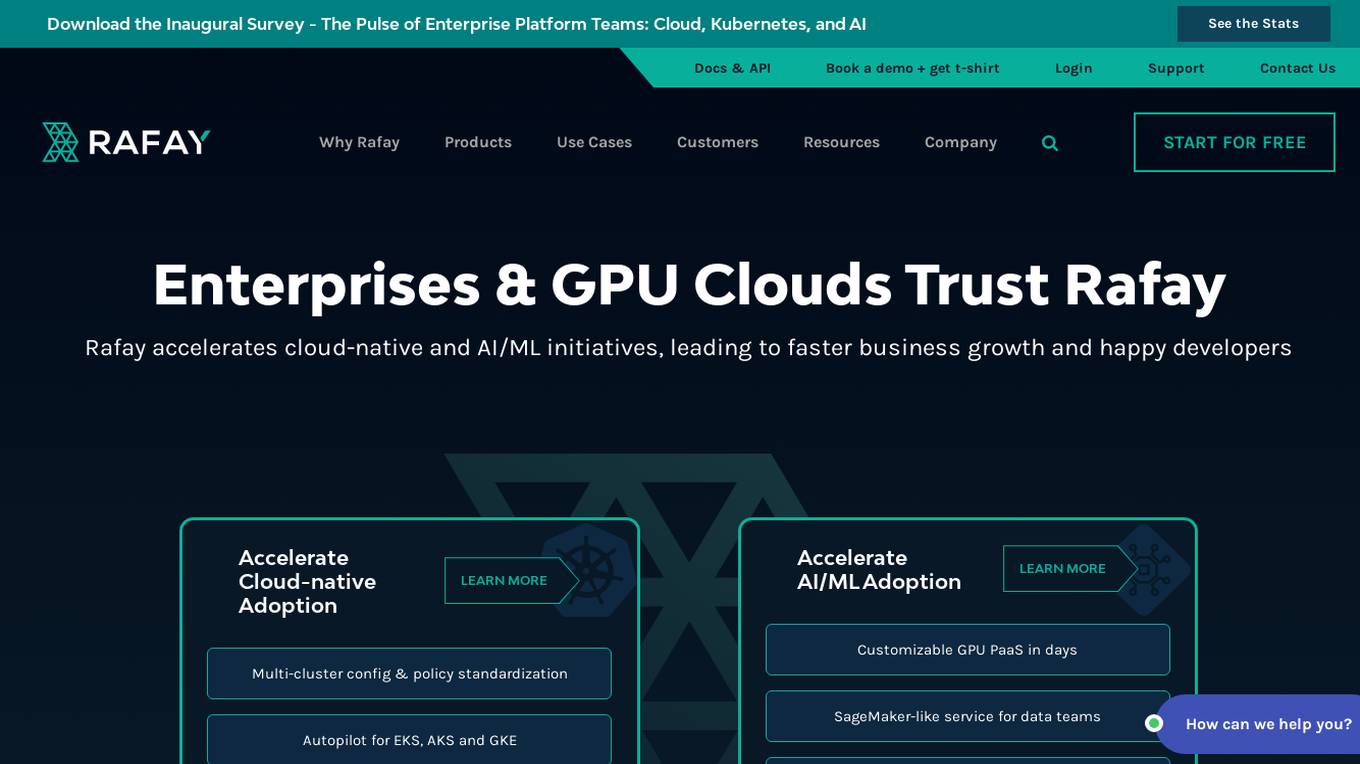
Rafay
Rafay is an AI-powered platform that accelerates cloud-native and AI/ML initiatives for enterprises. It provides automation for Kubernetes clusters, cloud cost optimization, and AI workbenches as a service. Rafay enables platform teams to focus on innovation by automating self-service cloud infrastructure workflows.
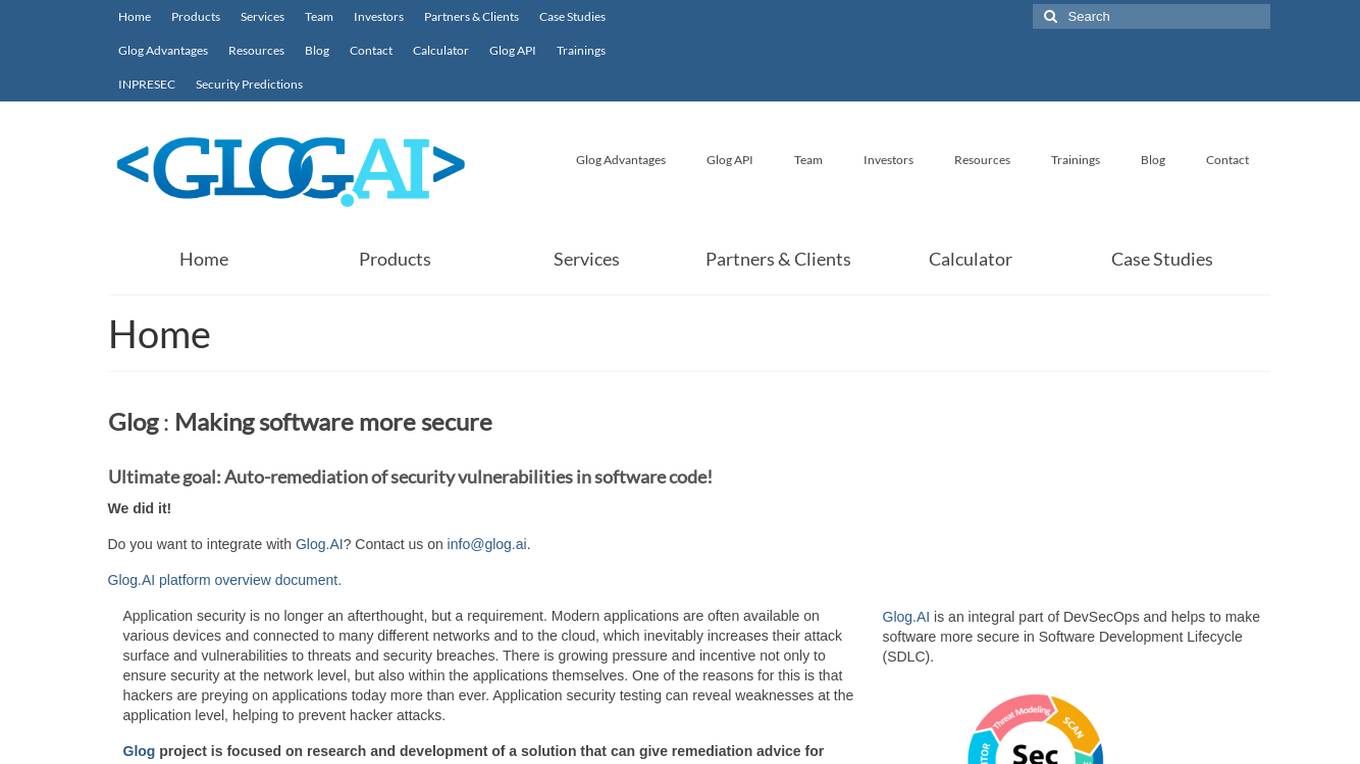
Glog
Glog is an AI application focused on making software more secure by providing remediation advice for security vulnerabilities in software code based on context. It is capable of automatically fixing vulnerabilities, thus reducing security risks and protecting against cyber attacks. The platform utilizes machine learning and AI to enhance software security and agility, ensuring system reliability, integrity, and safety.
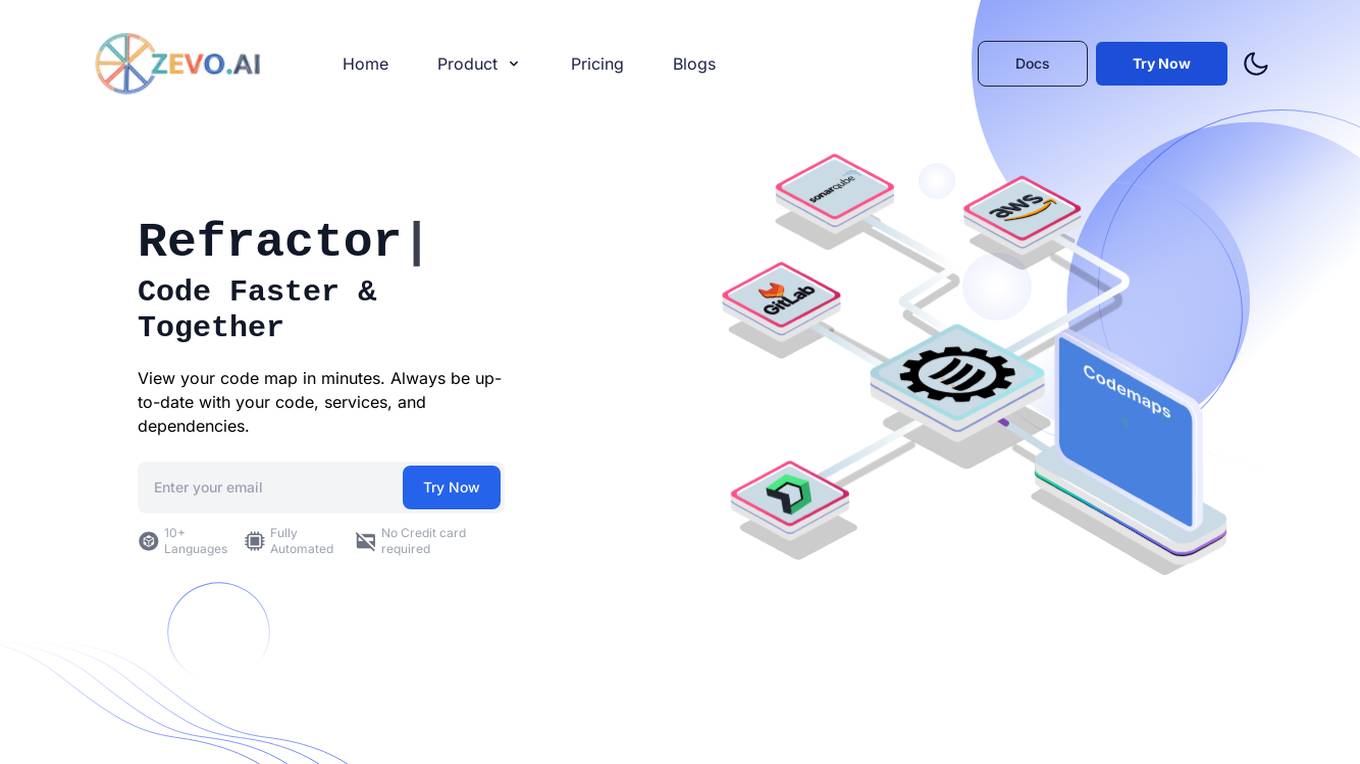
Zevo.ai
Zevo.ai is an AI-powered code visualization tool designed to accelerate code comprehension, deployment, and observation. It offers dynamic code analysis, contextual code understanding, and automatic code mapping to help developers streamline shipping, refactoring, and onboarding processes for both legacy and existing applications. By leveraging AI models, Zevo.ai provides deeper insights into code, logs, and cloud infrastructure, enabling developers to gain a better understanding of their codebase.
Helicone
Helicone is an open-source platform designed for developers, offering observability solutions for logging, monitoring, and debugging. It provides sub-millisecond latency impact, 100% log coverage, industry-leading query times, and is ready for production-level workloads. Trusted by thousands of companies and developers, Helicone leverages Cloudflare Workers for low latency and high reliability, offering features such as prompt management, uptime of 99.99%, scalability, and reliability. It allows risk-free experimentation, prompt security, and various tools for monitoring, analyzing, and managing requests.
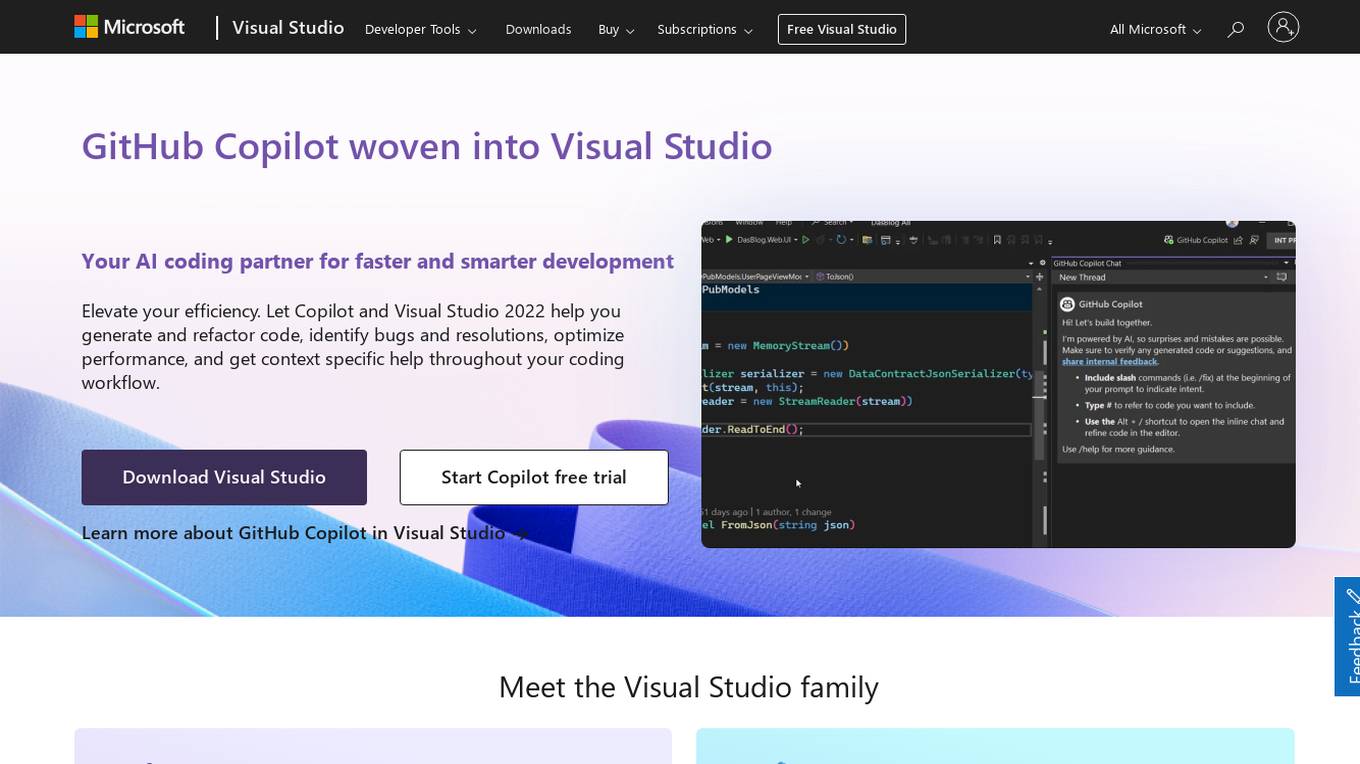
Visual Studio
Visual Studio is an integrated development environment (IDE) and code editor designed for software developers and teams. It offers a comprehensive set of tools and features to enhance every stage of software development, including code editing, debugging, building, and publishing applications. Visual Studio also includes compilers, code completion tools, graphical designers, and AI-powered coding assistance through GitHub Copilot integration.
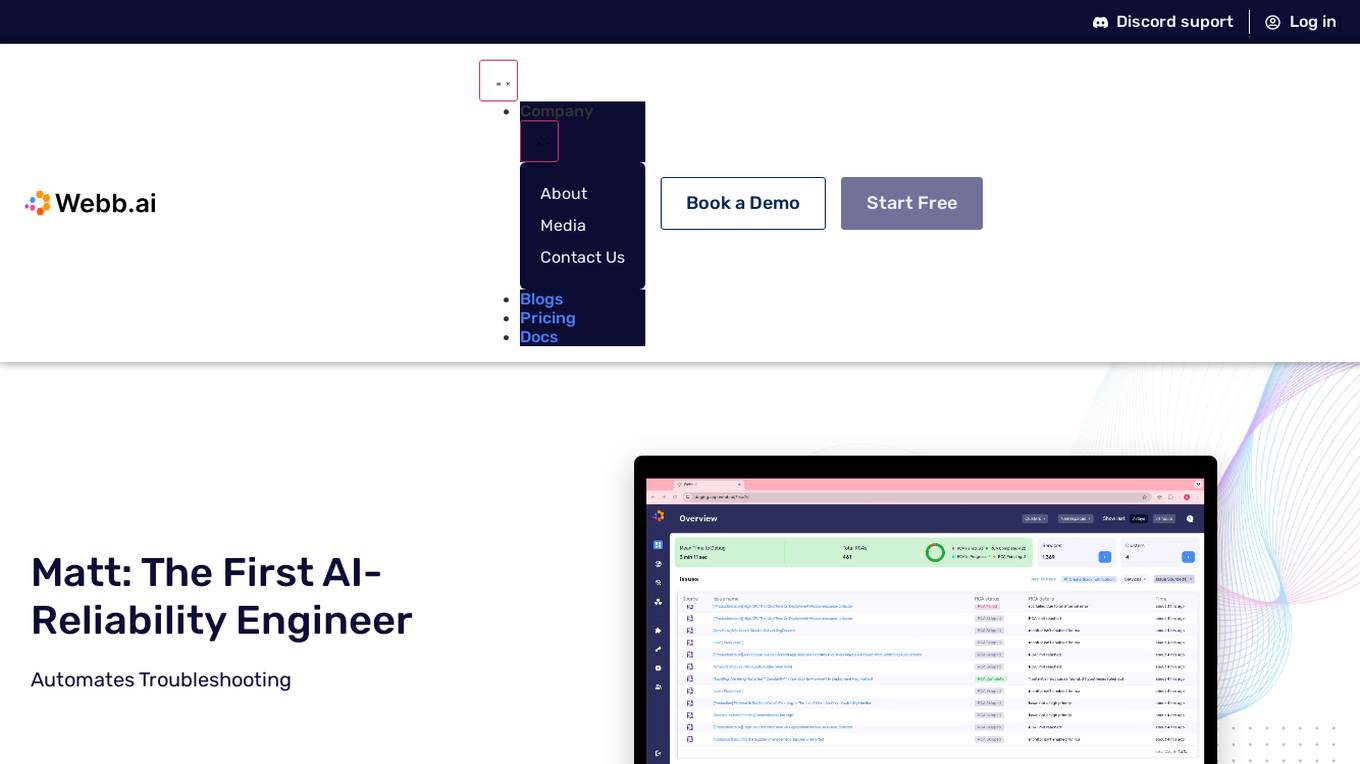
Webb.ai
Webb.ai is an AI-powered platform that offers automated troubleshooting for Kubernetes. It is designed to assist users in identifying and resolving issues within their Kubernetes environment efficiently. By leveraging AI technology, Webb.ai provides insights and recommendations to streamline the troubleshooting process, ultimately improving system reliability and performance. The platform is user-friendly and caters to both beginners and experienced users in the field of Kubernetes management.
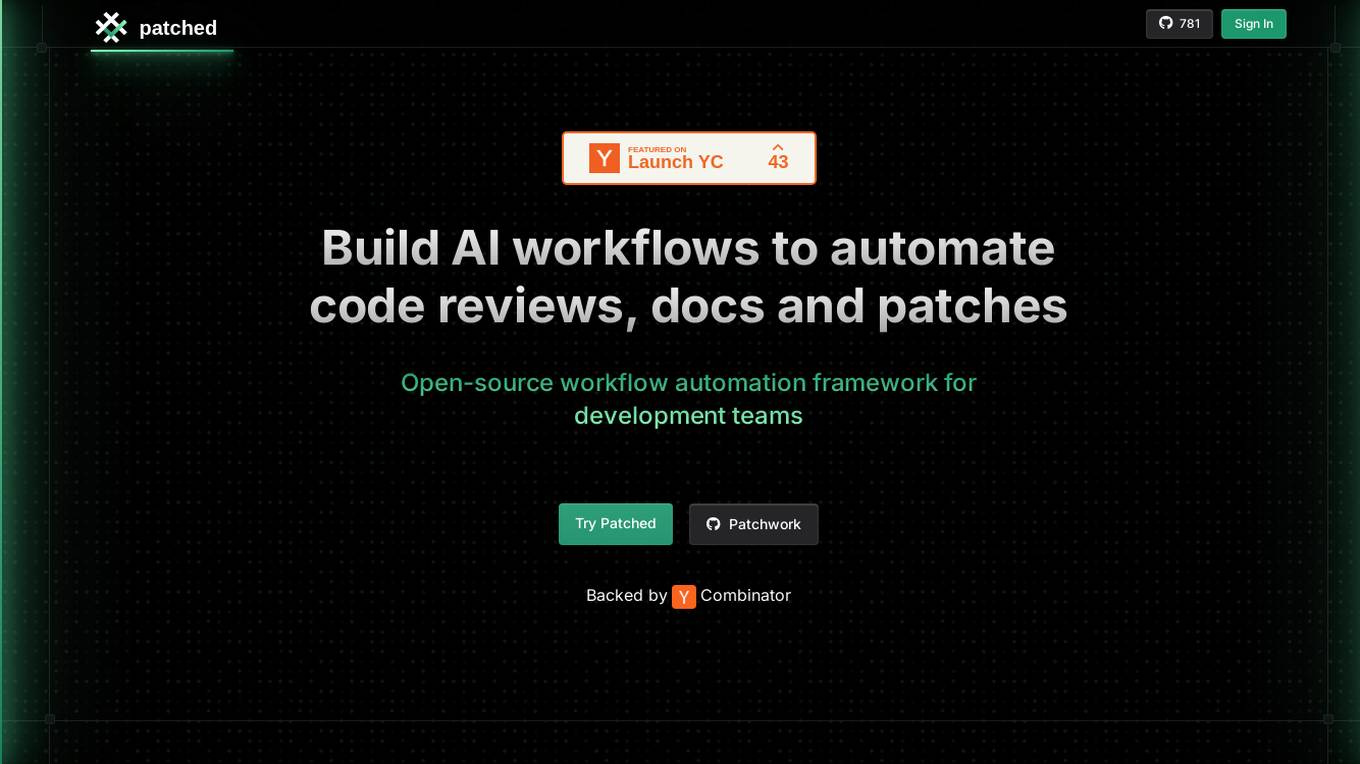
Patched
Patched is an open-source workflow automation framework designed for development teams to build AI workflows that automate code reviews, documentation, and patches. It offers ready-to-go patchflows or the ability to create custom ones to accelerate mundane development tasks. Patched integrates seamlessly with popular platforms like Gitlab, GitHub, Jira, and more, allowing users to improve code quality, fix bugs, and create tickets efficiently. The application is privacy-focused, allowing users to deploy it within their own infrastructure for complete privacy. Patched is free and open-source, offering customization options via code or a no-code builder.
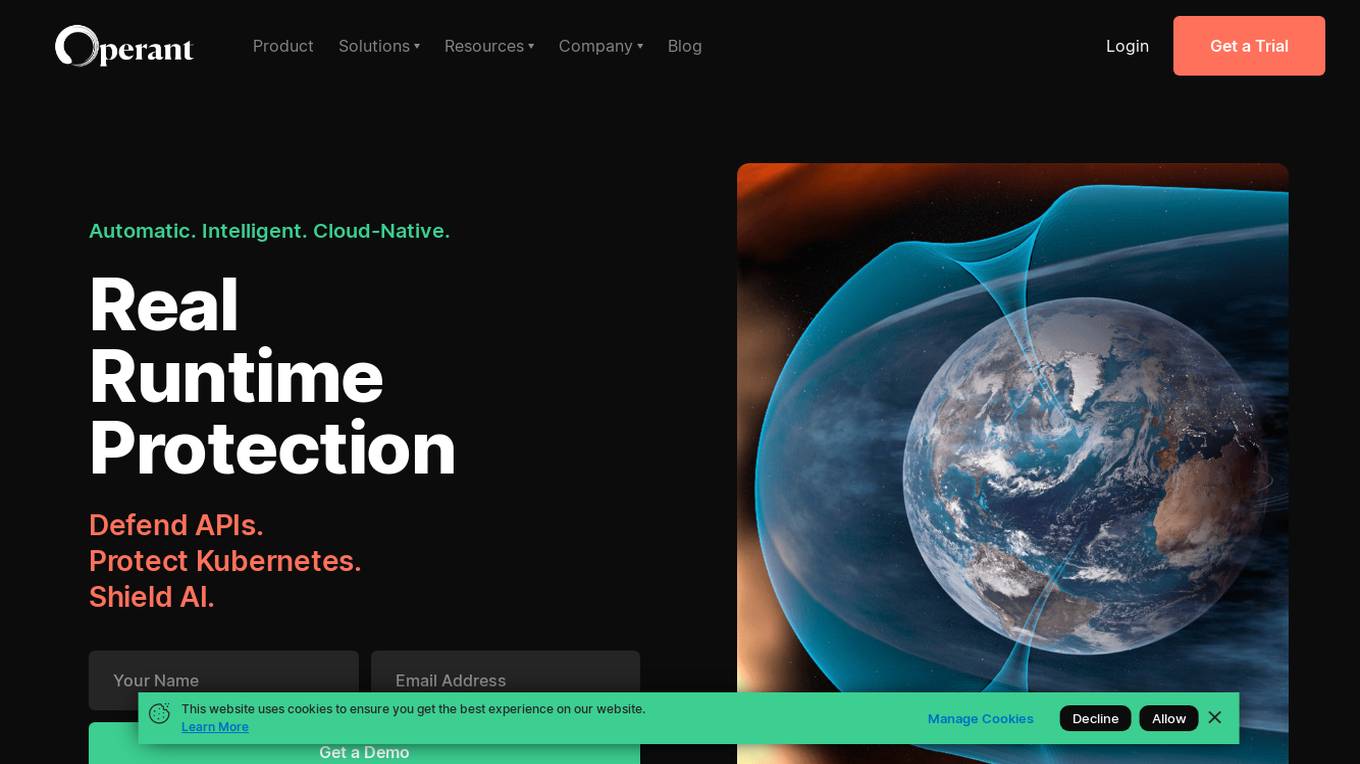
Operant
Operant is a cloud-native runtime protection platform that offers instant visibility and control from infrastructure to APIs. It provides AI security shield for applications, API threat protection, Kubernetes security, automatic microsegmentation, and DevSecOps solutions. Operant helps defend APIs, protect Kubernetes, and shield AI applications by detecting and blocking various attacks in real-time. It simplifies security for cloud-native environments with zero instrumentation, application code changes, or integrations.
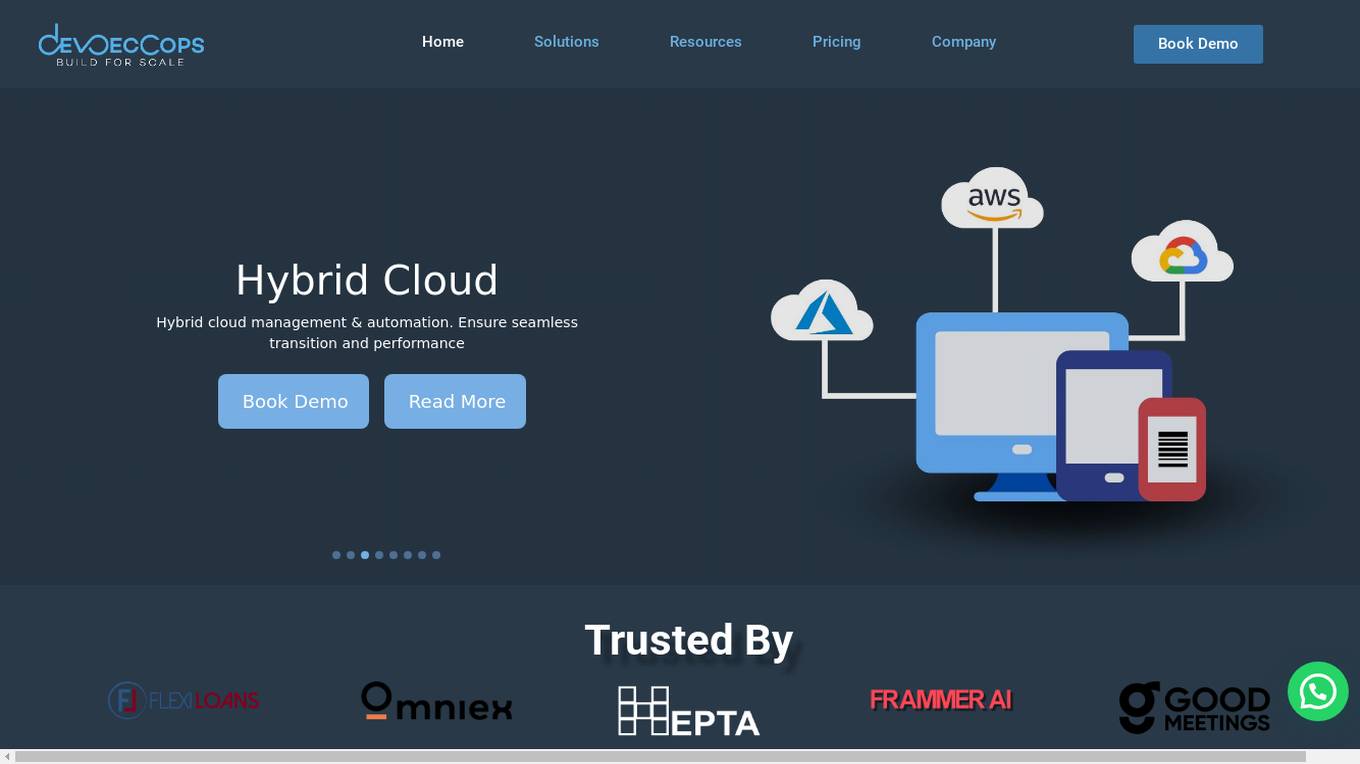
DevSecCops
DevSecCops is an AI-driven automation platform designed to revolutionize DevSecOps processes. The platform offers solutions for cloud optimization, machine learning operations, data engineering, application modernization, infrastructure monitoring, security, compliance, and more. With features like one-click infrastructure security scan, AI engine security fixes, compliance readiness using AI engine, and observability, DevSecCops aims to enhance developer productivity, reduce cloud costs, and ensure secure and compliant infrastructure management. The platform leverages AI technology to identify and resolve security issues swiftly, optimize AI workflows, and provide cost-saving techniques for cloud architecture.

Start Left® Security
Start Left® Security is an AI-driven application security posture management platform that empowers product teams to automate secure-by-design software from people to cloud. The platform integrates security into every facet of the organization, offering a unified solution that aligns with business goals, fosters continuous improvement, and drives innovation. Start Left® Security provides a gamified DevSecOps experience with comprehensive security capabilities like SCA, SBOM, SAST, DAST, Container Security, IaC security, ASPM, and more.
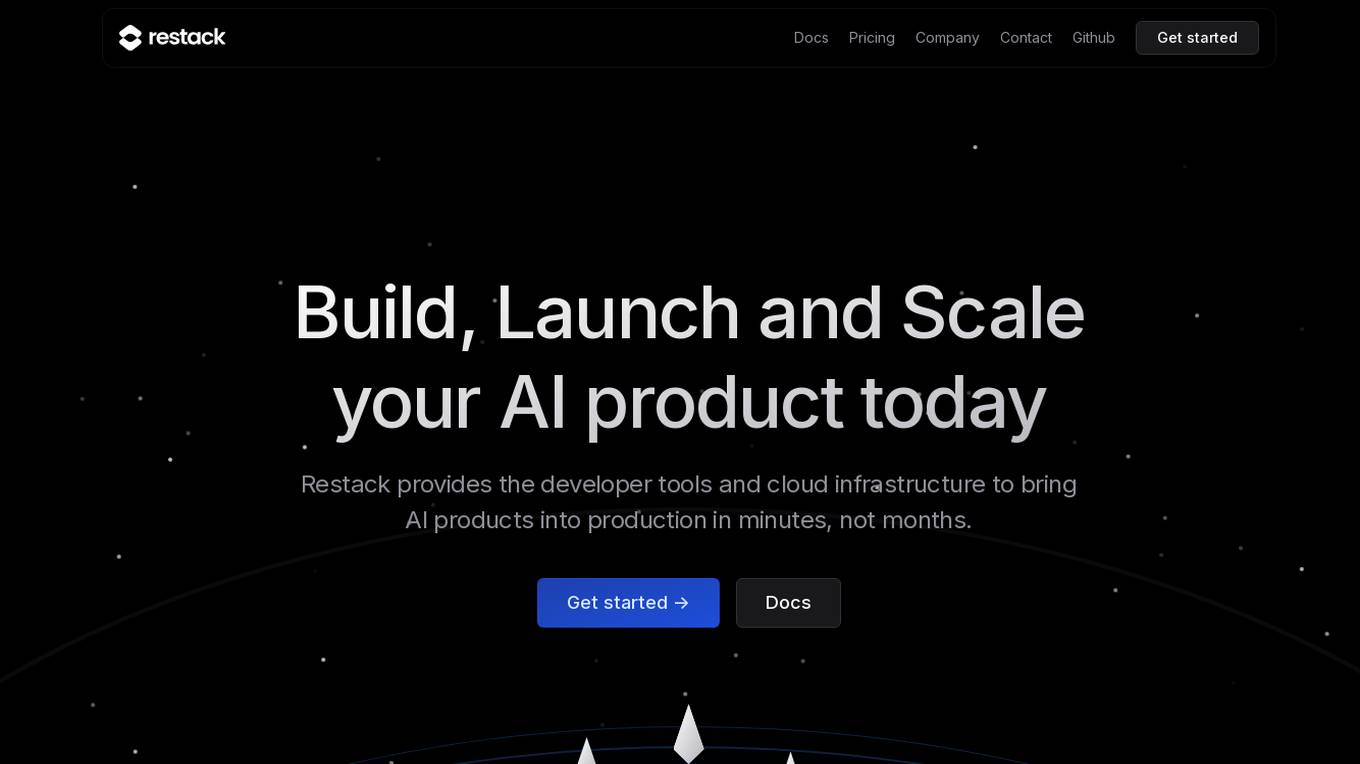
Restack
Restack is a developer tool and cloud infrastructure platform that enables users to build, launch, and scale AI products quickly and efficiently. With Restack, developers can go from local development to production in seconds, leveraging a variety of languages and frameworks. The platform offers templates, repository connections, and Dockerfile customization for seamless deployment. Restack Cloud provides cost-efficient scaling and GitHub integration for instant deployment. The platform simplifies the complexity of building and scaling AI applications, allowing users to move from code to production faster than ever before.
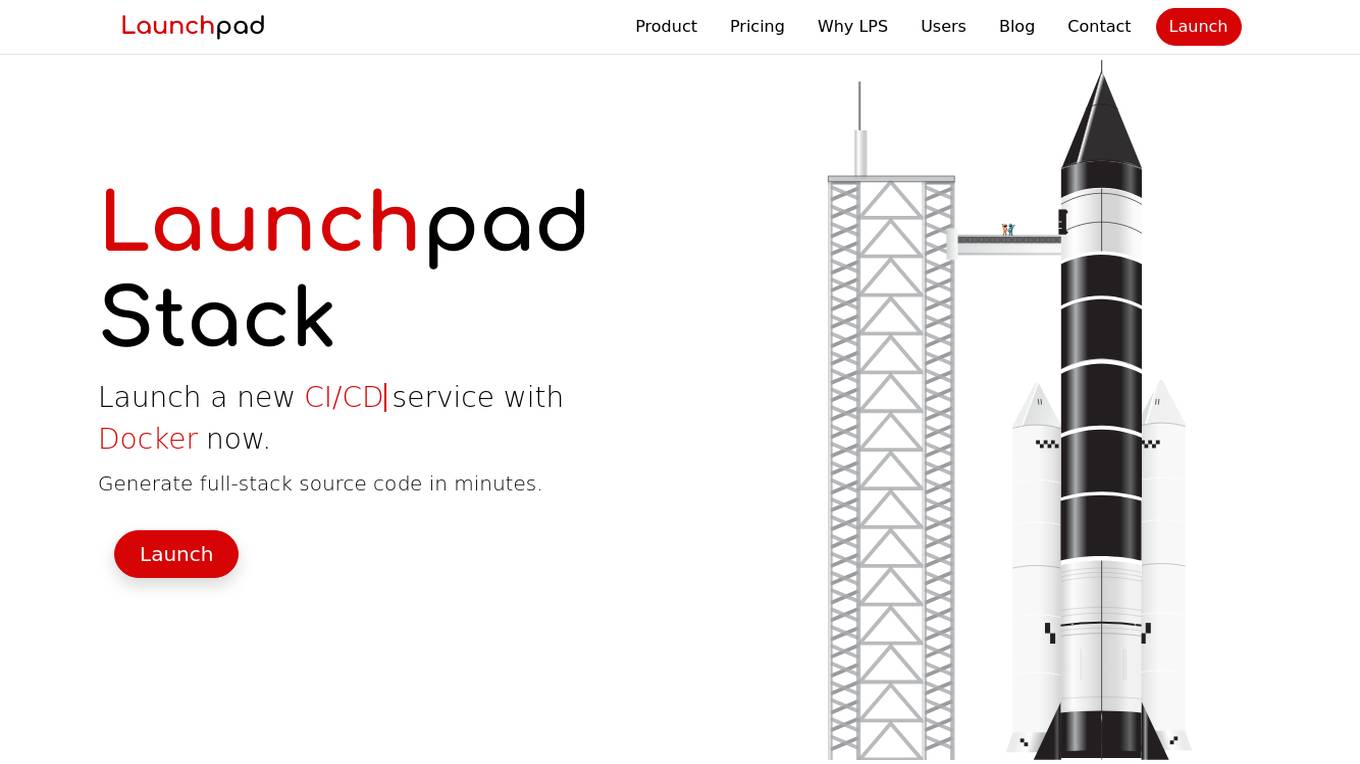
Launchpad Stack
Launchpad Stack is an AI-powered platform that allows users to quickly launch new Rails services with AWS. It generates full-stack source code in minutes, covering infrastructure, application, CI/CD pipeline, monitoring, security, and more. The platform offers a suite of inter-operable code packages tailored to the user's project requirements, with no restrictive licenses. Users can launch enterprise-grade stacks in minutes, pay once for the components they need, and enjoy ongoing support for their projects.
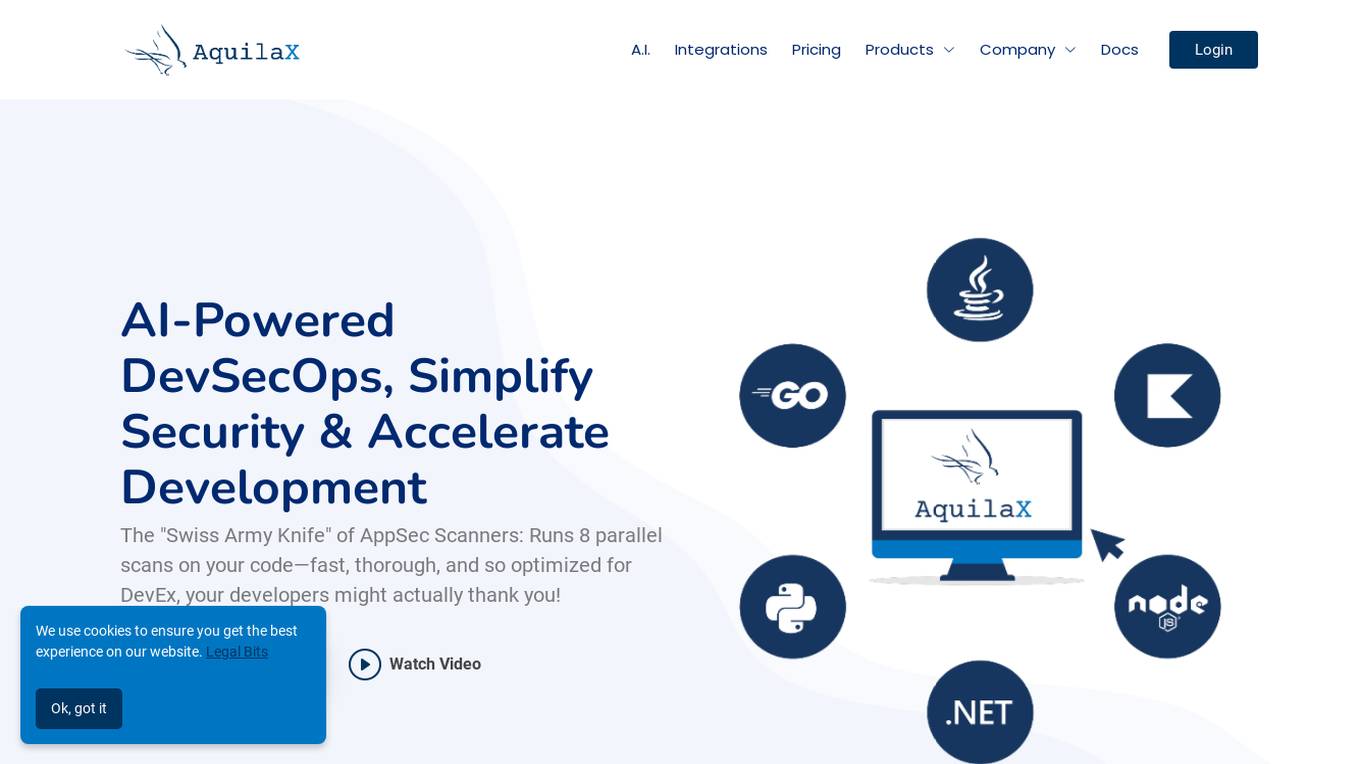
AquilaX
AquilaX is an AI-powered DevSecOps platform that simplifies security and accelerates development processes. It offers a comprehensive suite of security scanning tools, including secret identification, PII scanning, SAST, container scanning, and more. AquilaX is designed to integrate seamlessly into the development workflow, providing fast and accurate results by leveraging AI models trained on extensive datasets. The platform prioritizes developer experience by eliminating noise and false positives, making it a go-to choice for modern Secure-SDLC teams worldwide.
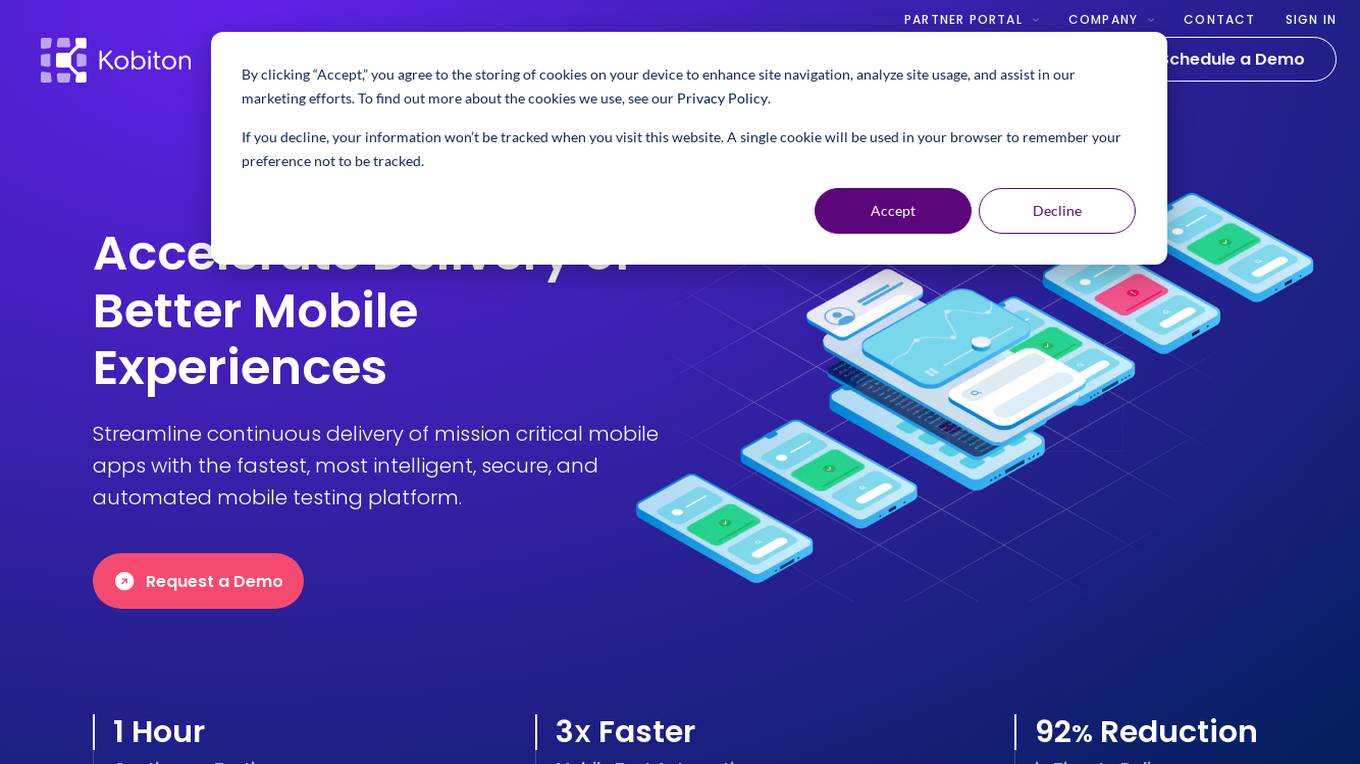
Kobiton
Kobiton is a mobile device testing platform that accelerates app delivery, improves productivity, and maximizes mobile app impact. It offers a comprehensive suite of features for real-device testing, visual testing, performance testing, accessibility testing, and more. With AI-augmented testing and no-code validations, Kobiton helps enterprises streamline continuous delivery of mobile apps. The platform provides secure and scalable device lab management, mobile device cloud, and integration with DevOps toolchain for enhanced productivity and efficiency.
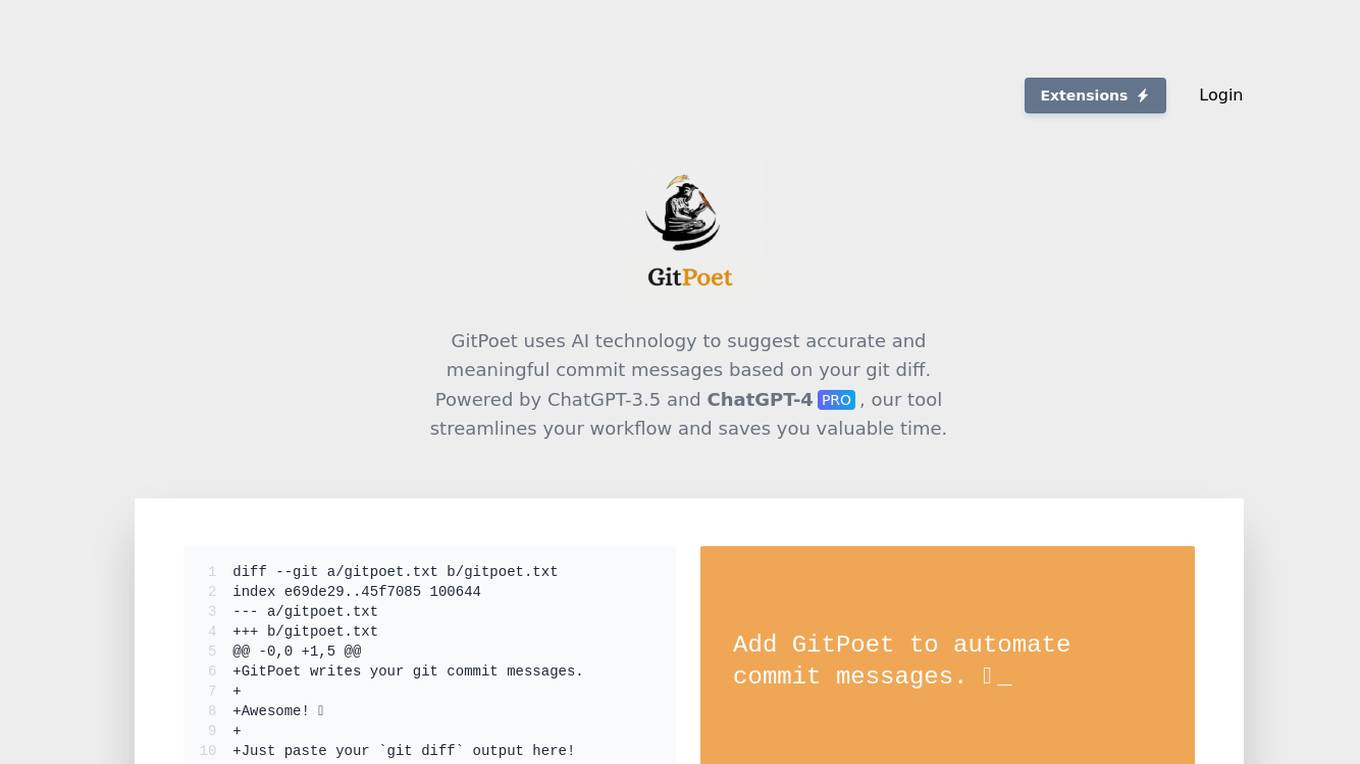
GitPoet
GitPoet is an AI tool that generates creative and meaningful Git commit messages. It uses advanced natural language processing algorithms to analyze code changes and suggest relevant commit messages. With GitPoet, developers can save time and effort in writing commit messages, while also improving the overall quality and consistency of their commit history.
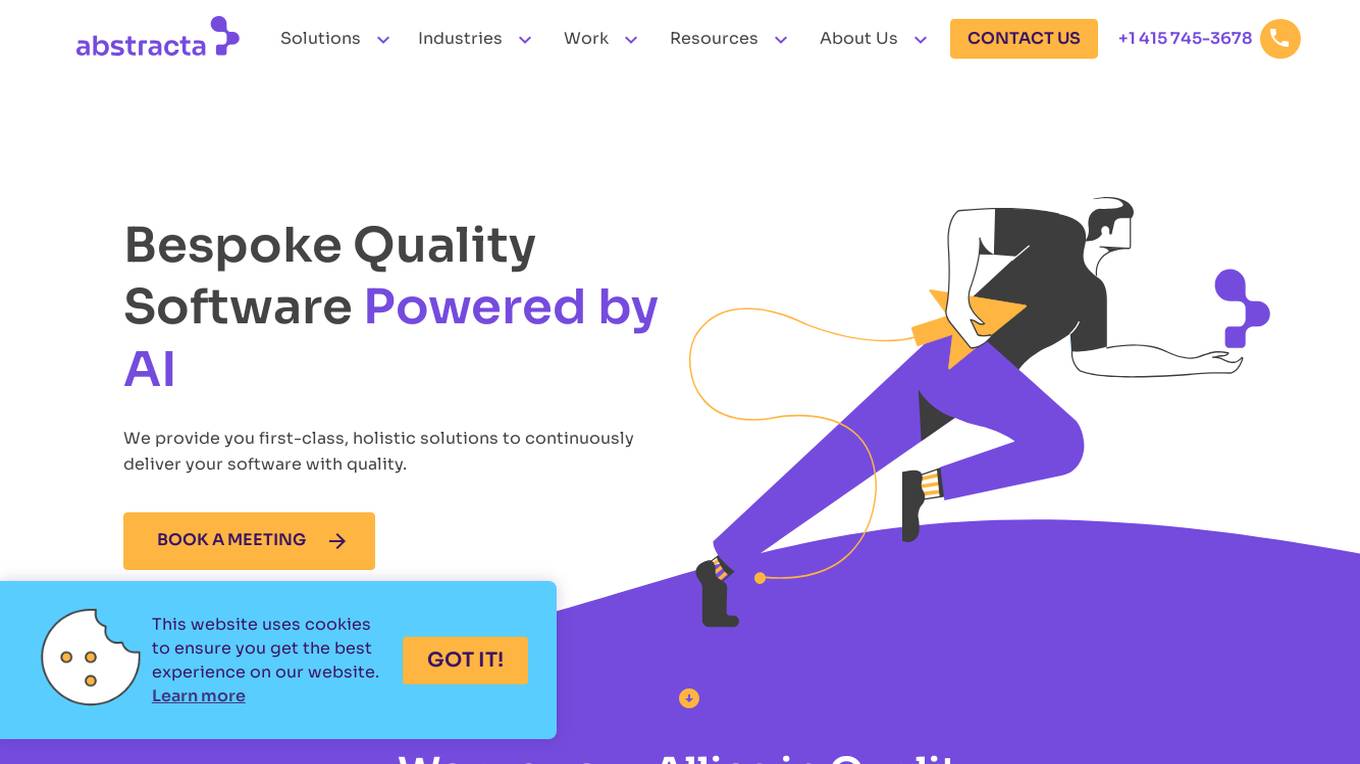
Abstracta Solutions
Abstracta Solutions is an AI software development company that provides holistic solutions for software quality. They offer services such as AI software development, testing strategy, functional testing, test automation, performance testing, tool development, accessibility testing, security testing, and DevOps services. Abstracta Solutions empowers organizations with AI-driven solutions to streamline software development processes and enhance customer experiences. They focus on continuously delivering high-quality software by co-creating quality strategies and leveraging expertise in different areas of software development.
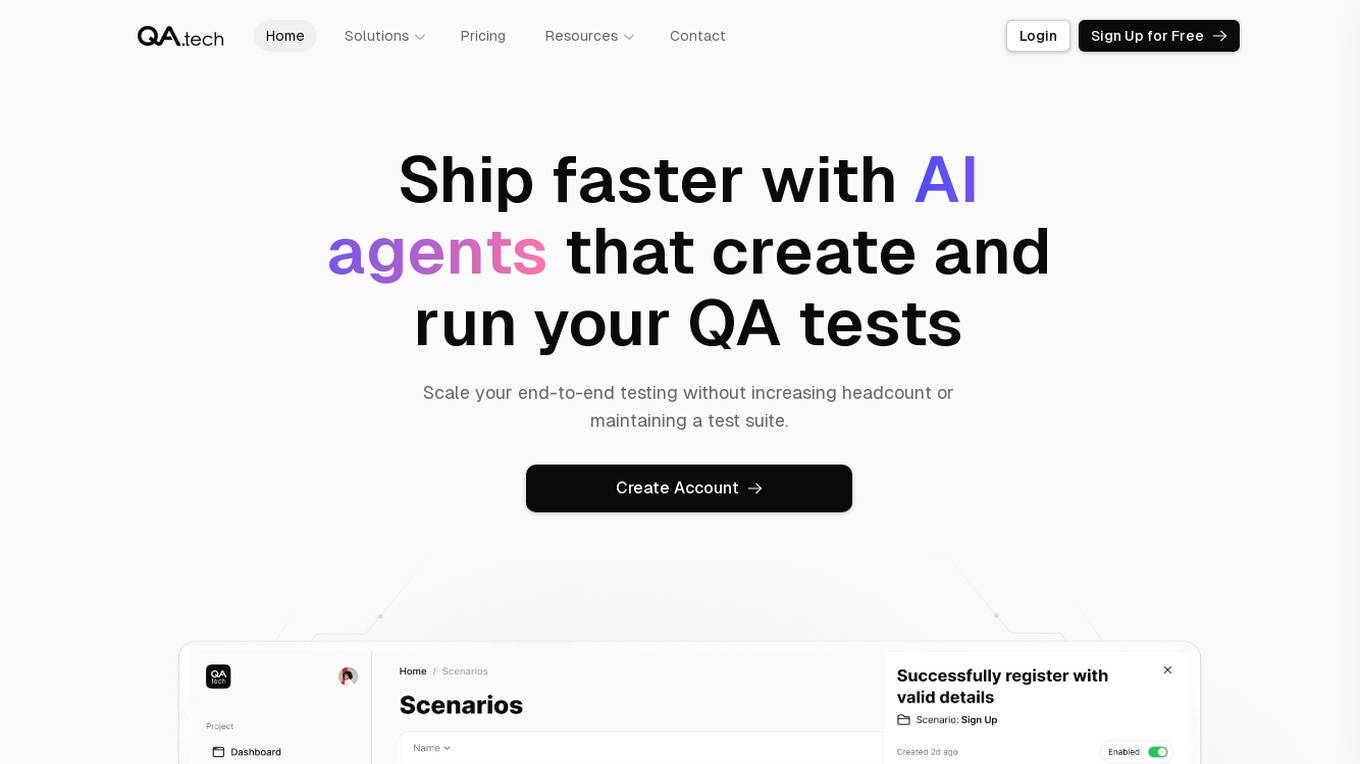
QA.tech
QA.tech is an advanced end-to-end testing application designed for B2B SaaS companies. It offers AI-powered testing solutions to help businesses ship faster, cut costs, and improve testing efficiency. The application features an AI agent named Jarvis that automates the testing process by scanning web apps, creating detailed memory structures, generating tests based on user interactions, and continuously testing for defects. QA.tech provides developer-friendly bug reports, supports various web frameworks, and integrates with CI/CD pipelines. It aims to revolutionize the testing process by offering faster, smarter, and more efficient testing solutions.
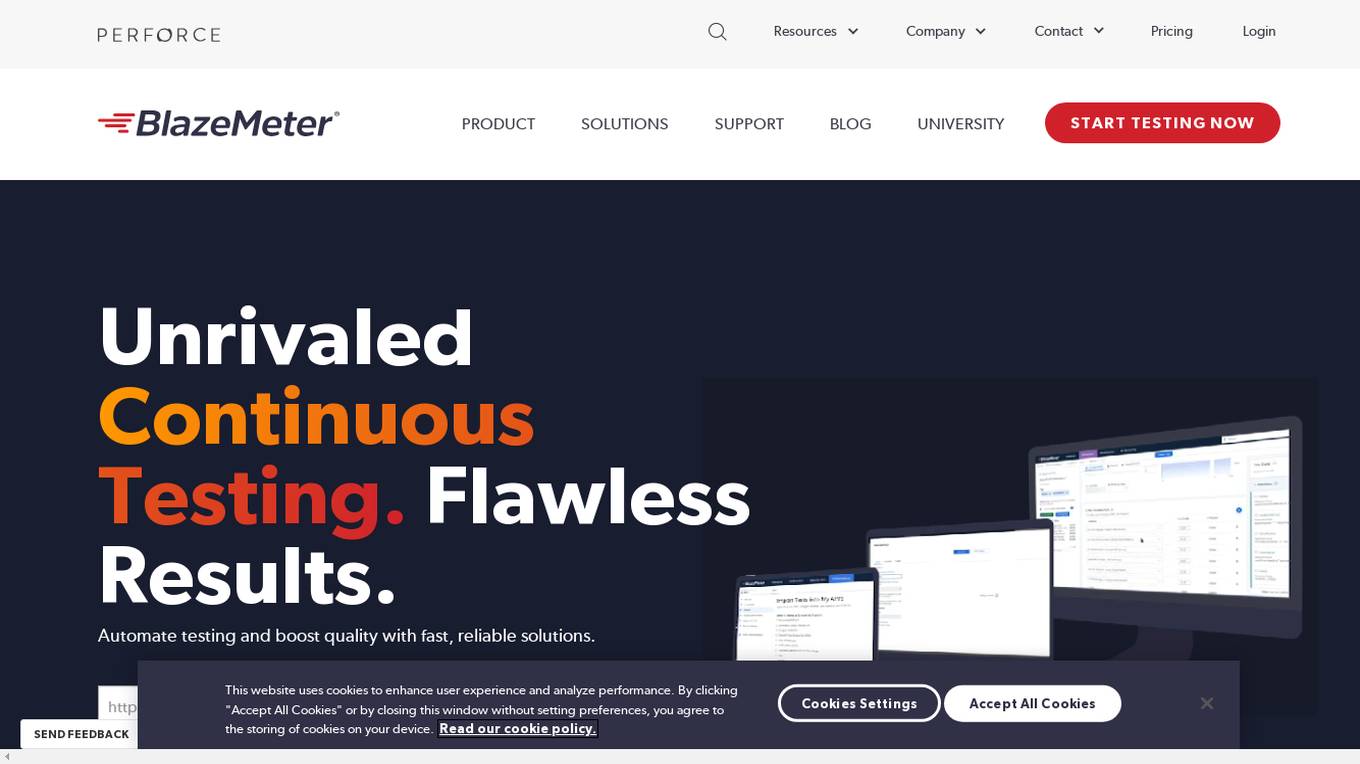
BlazeMeter
BlazeMeter by Perforce is an AI-powered continuous testing platform designed to automate testing processes and enhance software quality. It offers effortless test creation, seamless test execution, instant issue analysis, and self-sustaining maintenance. BlazeMeter provides a comprehensive solution for performance, functional, scriptless, API testing, and monitoring, along with test data and service virtualization. The platform enables teams to speed up digital transformation, shift quality left, and streamline DevOps practices. With AI analytics, scriptless test creation, and UX testing capabilities, BlazeMeter empowers users to drive innovation, accuracy, and speed in their test automation efforts.
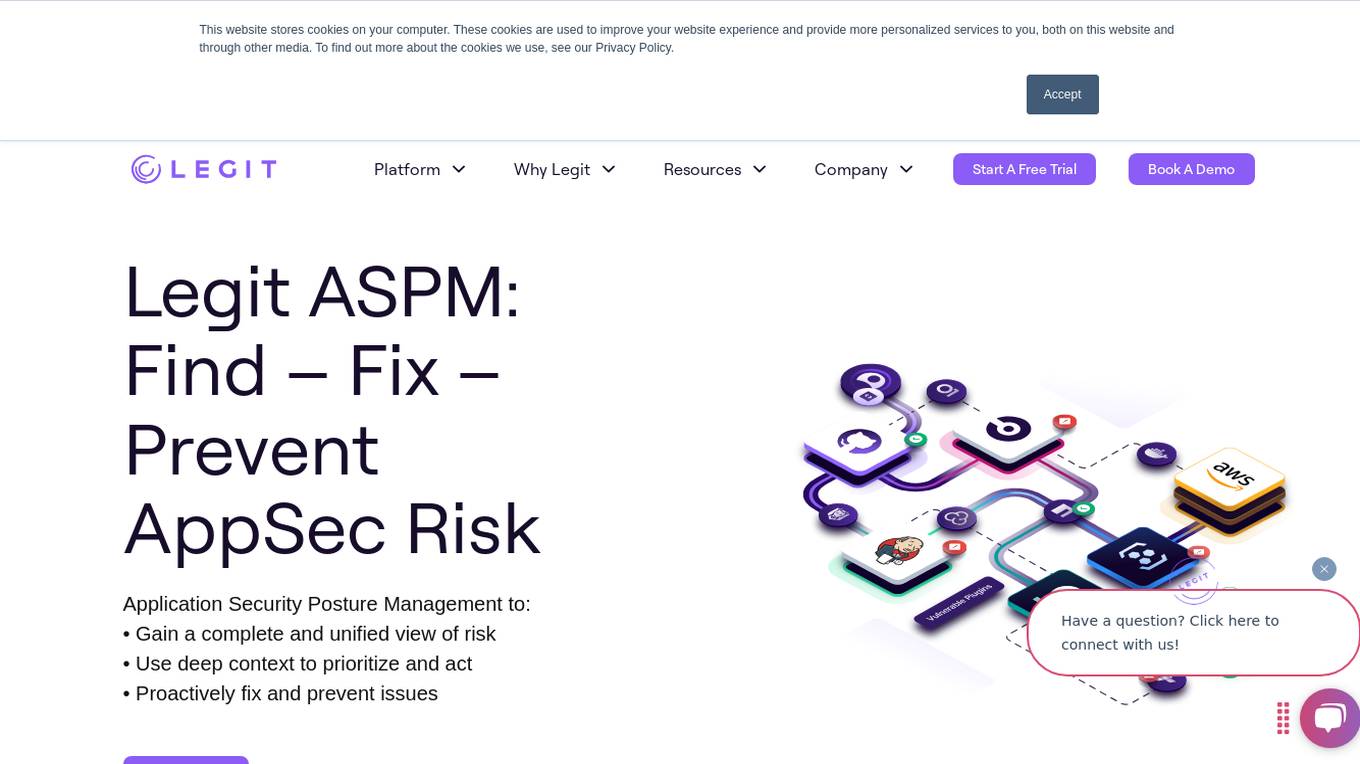
Legit
Legit is an Application Security Posture Management (ASPM) platform that helps organizations manage and mitigate application security risks from code to cloud. It offers features such as Secrets Detection & Prevention, Continuous Compliance, Software Supply Chain Security, and AI Security Posture Management. Legit provides a unified view of AppSec risk, deep context to prioritize issues, and proactive remediation to prevent future risks. It automates security processes, collaborates with DevOps teams, and ensures continuous compliance. Legit is trusted by Fortune 500 companies like Kraft-Heinz for securing the modern software factory.
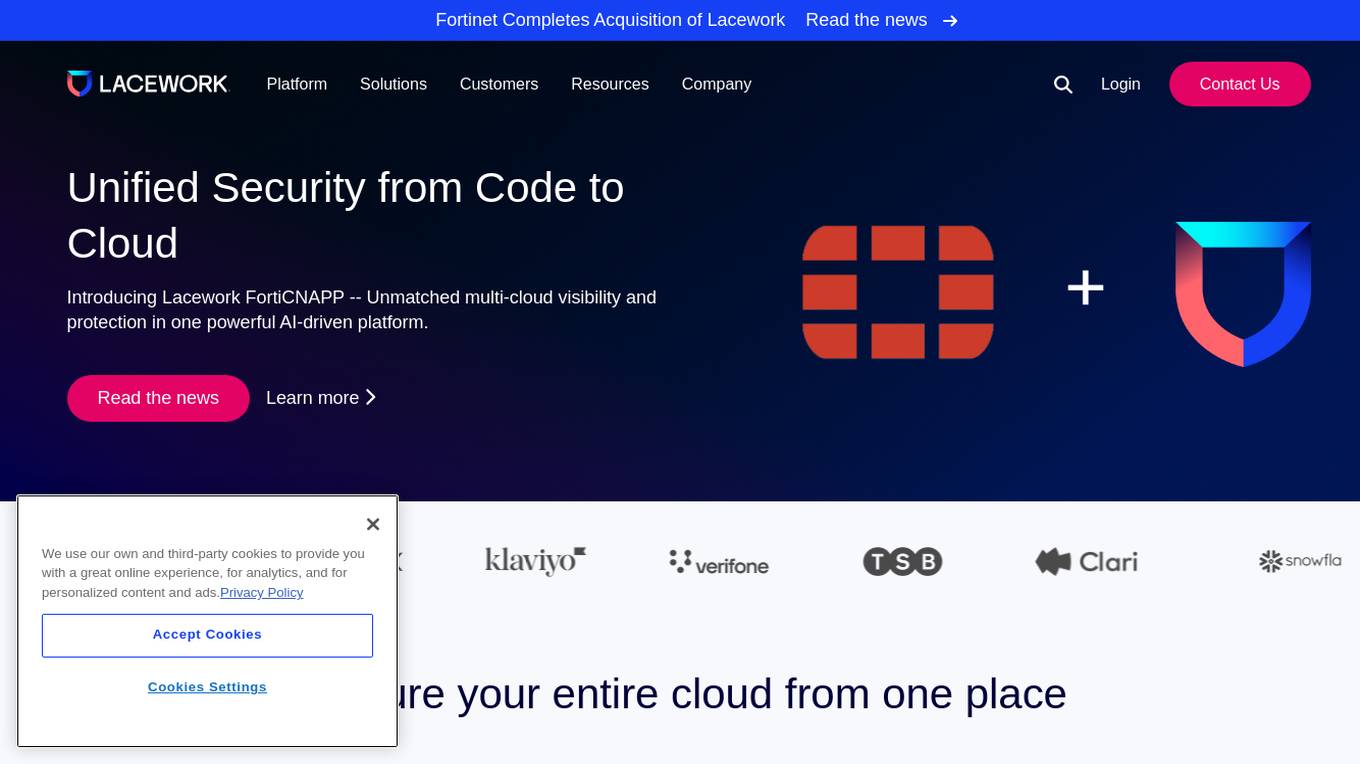
Lacework
Lacework is a cloud security platform that provides comprehensive security solutions for DevOps, Containers, and Cloud Environments. It offers features such as Code Security, Workload Protection, Identities and Entitlements management, Posture Management, Kubernetes Security, Data Posture Management, Infrastructure as Code security, Software Composition Analysis, Application Security Testing, Edge Security, and Platform Overview. Lacework empowers users to secure their entire cloud infrastructure, prioritize risks, protect workloads, and stay compliant by leveraging AI-driven technologies and behavior-based threat detection. The platform helps automate compliance reporting, fix vulnerabilities, and reduce alerts, ultimately enhancing cloud security and operational efficiency.
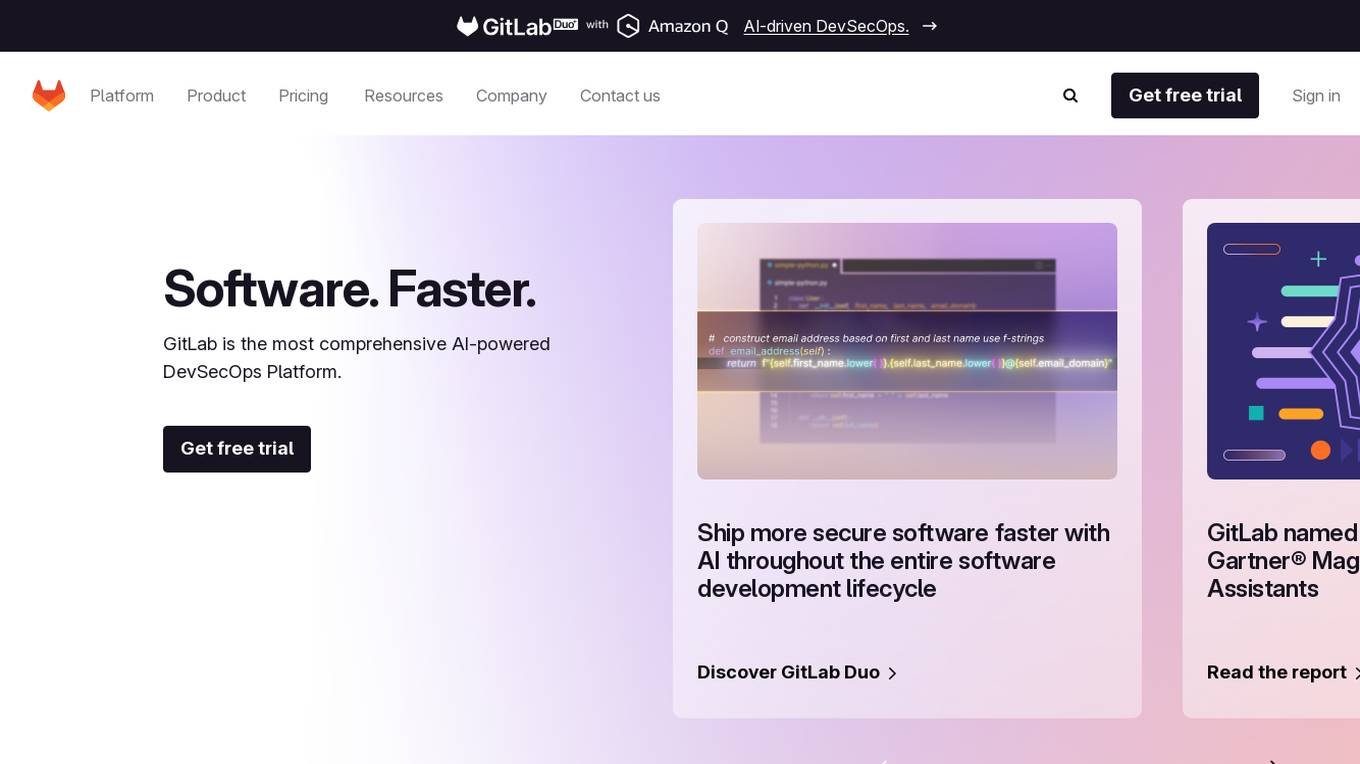
GitLab
GitLab is a comprehensive AI-powered DevSecOps platform that balances speed and security in a single platform. It automates software delivery, boosts productivity, and secures the end-to-end software supply chain. GitLab simplifies the toolchain by providing all essential DevSecOps tools in one place, accelerates software delivery with automation and AI-powered workflows, and integrates security seamlessly. It allows users to deploy anywhere without cloud vendor lock-in, offering value stream management, analytics, and insights to accelerate coding and optimize processes.
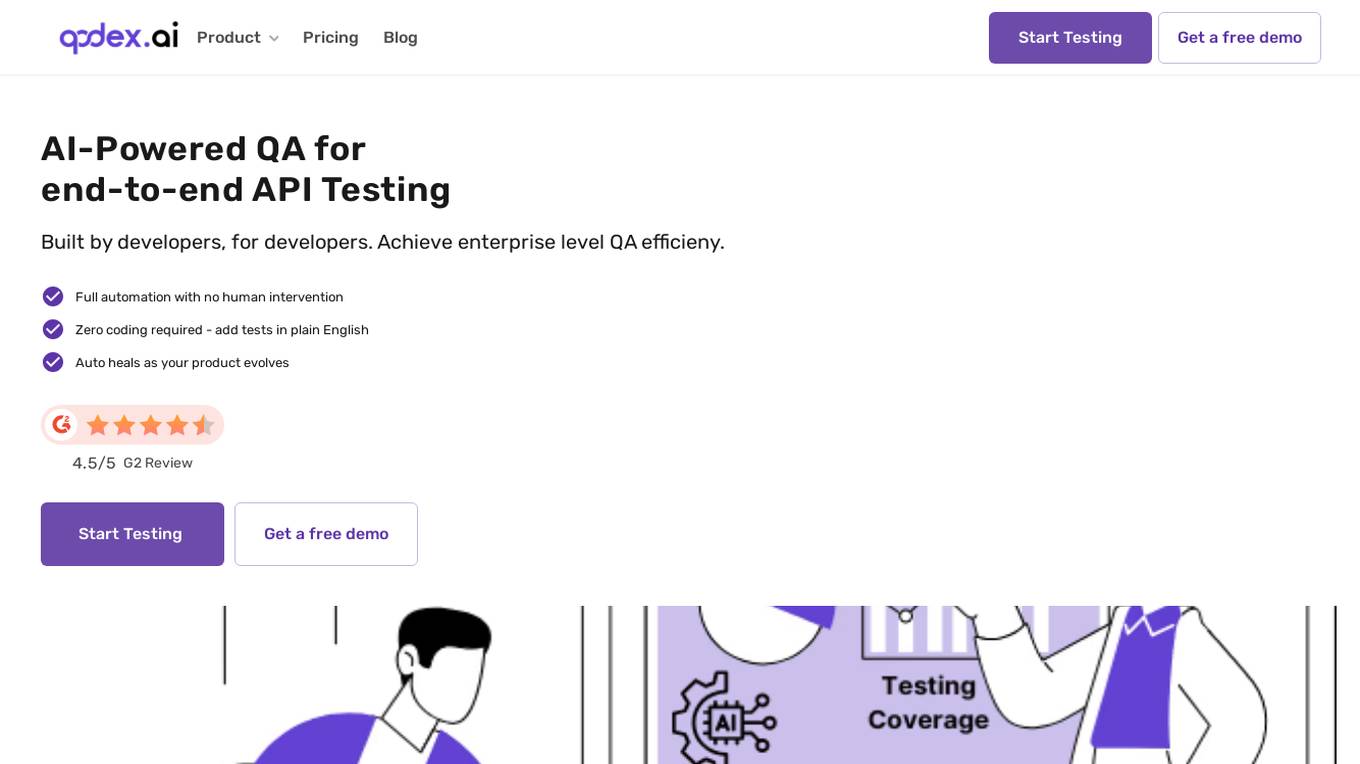
Qodex
Qodex is an AI-powered QA tool designed for end-to-end API testing, built by developers for developers. It offers enterprise-level QA efficiency with full automation and zero coding required. The tool auto-generates tests in plain English and adapts as the product evolves. Qodex also provides interactive API documentation and seamless integration, making it a cost-effective solution for enhancing productivity and efficiency in software testing.
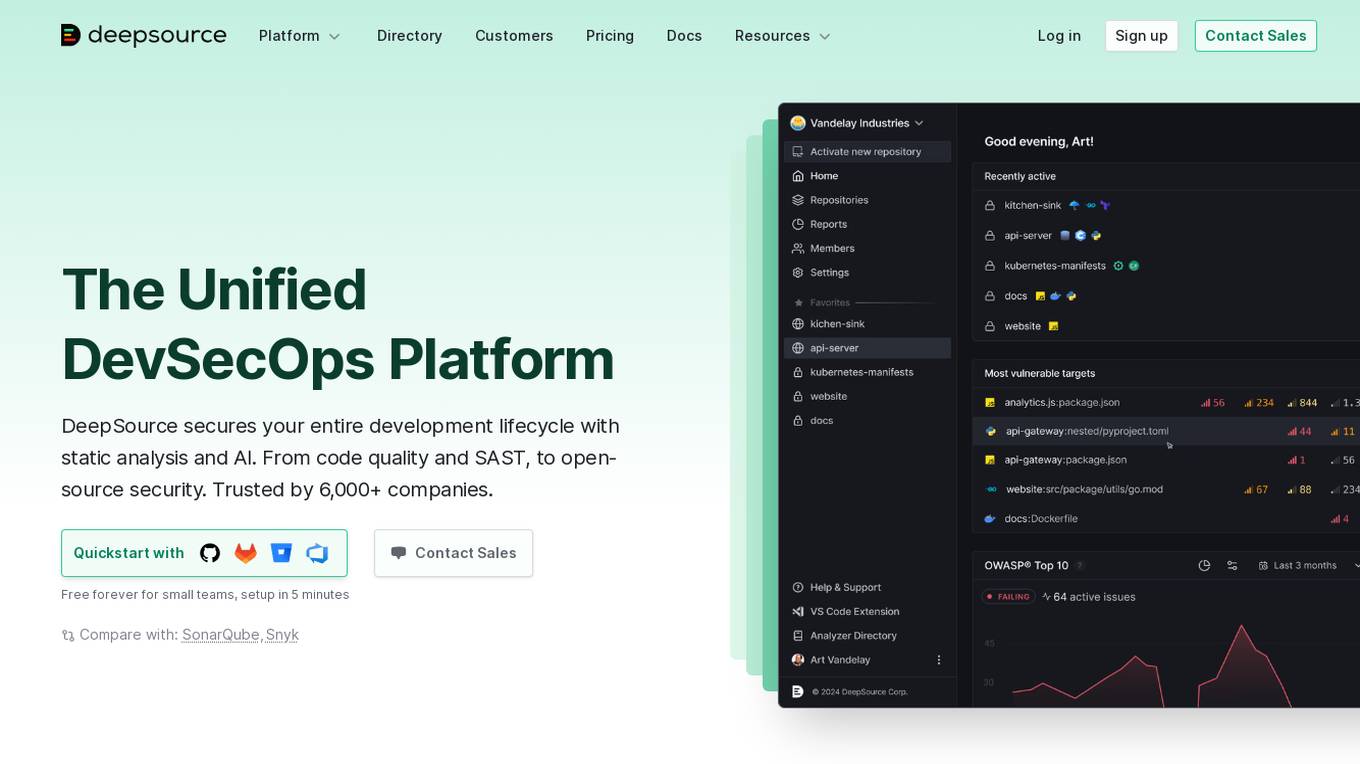
DeepSource
DeepSource is a Unified DevSecOps Platform that secures the entire development lifecycle with static analysis and AI. It offers code quality and SAST, open-source security, and is trusted by over 6,000 companies. The platform helps in finding and fixing security vulnerabilities before code is merged, with a low false-positive rate and customizable security gates for pull requests. DeepSource is built for modern software development, providing features like Autofix™ AI, code coverage, and integrations with popular tools like Jira and GitHub Issues. It offers detailed reports, issue suppression, and metric thresholds to ensure clean and secure code shipping.
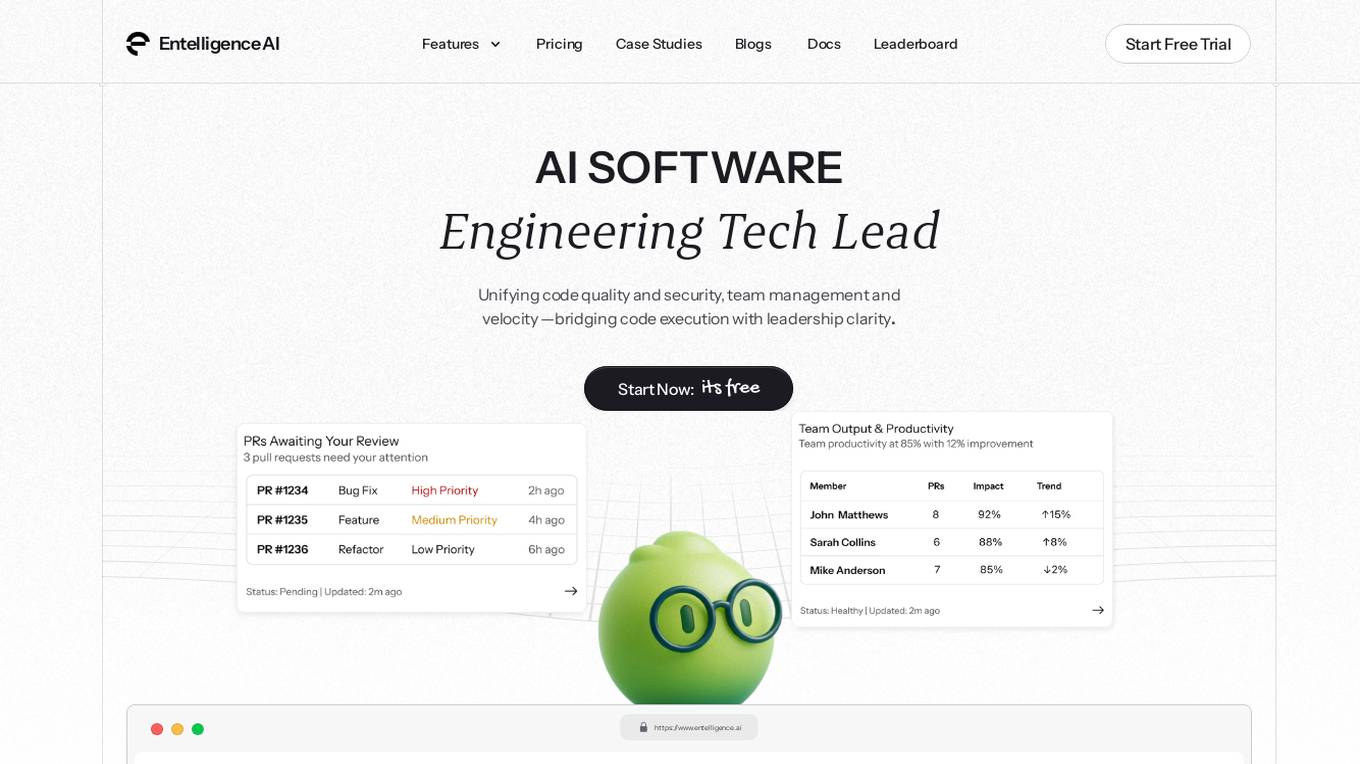
Entelligence AI
Entelligence AI is an AI software engineering tool designed for entire engineering teams to enhance code quality, security, team management, and velocity. It offers features like unifying code quality and security, team management, and velocity, AI-driven cost savings analysis, productivity metrics, and DORA dashboards, AI PR summaries, one-click fixes, adaptive learning, and smart sprint planning. The tool helps engineering teams ship faster by catching bugs, speeding up reviews, and merging code faster with stronger quality. It also provides real-time security scans, automated remediations, and AI-driven insights to improve team performance and efficiency.
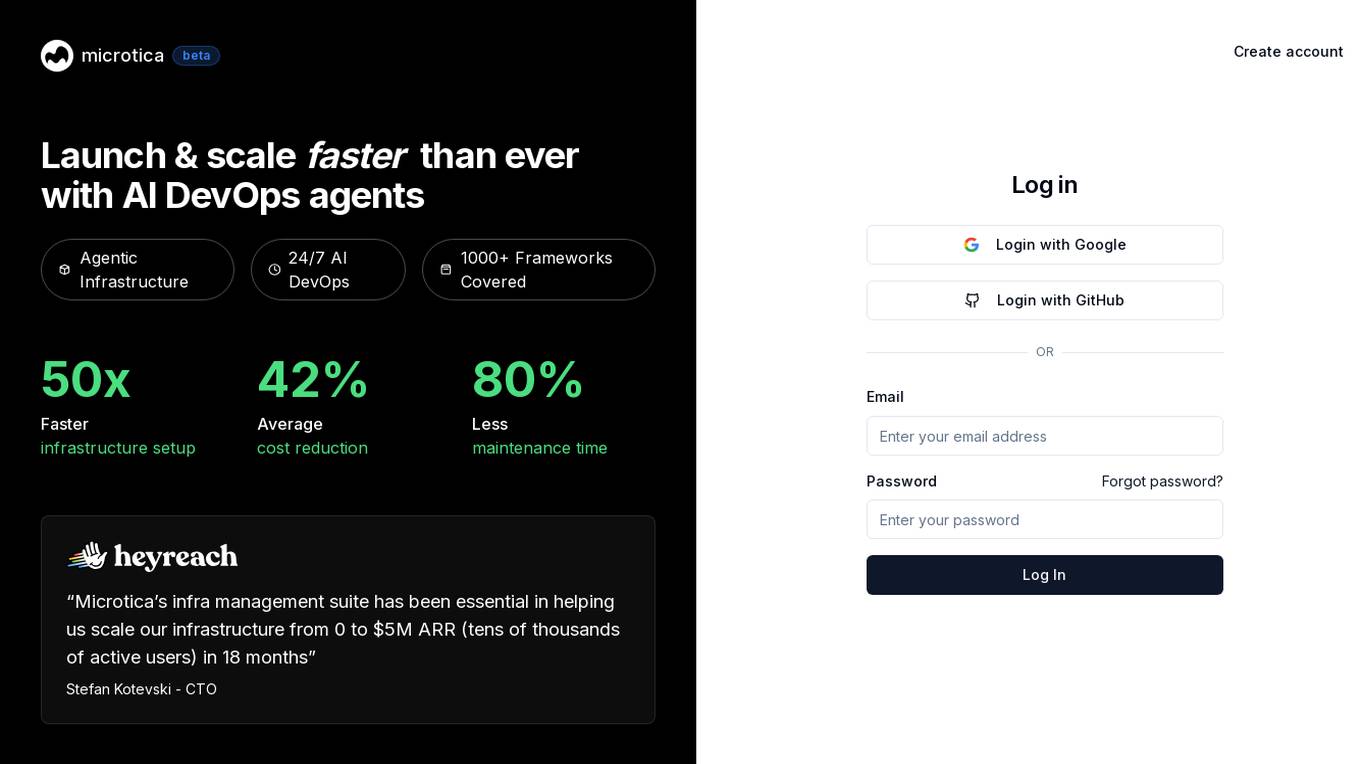
Microtica AI Deployment Tool
Microtica AI Deployment Tool is an advanced platform that leverages artificial intelligence to streamline the deployment process of cloud infrastructure. The tool offers features such as incident investigation with AI assistance, designing and deploying cloud infrastructure using natural language, and automated deployments. With Microtica, users can easily analyze logs, metrics, and system state to identify root causes and solutions, as well as get infrastructure-as-code and architecture diagrams. The platform aims to simplify the deployment process and enhance productivity by integrating AI capabilities into the workflow.
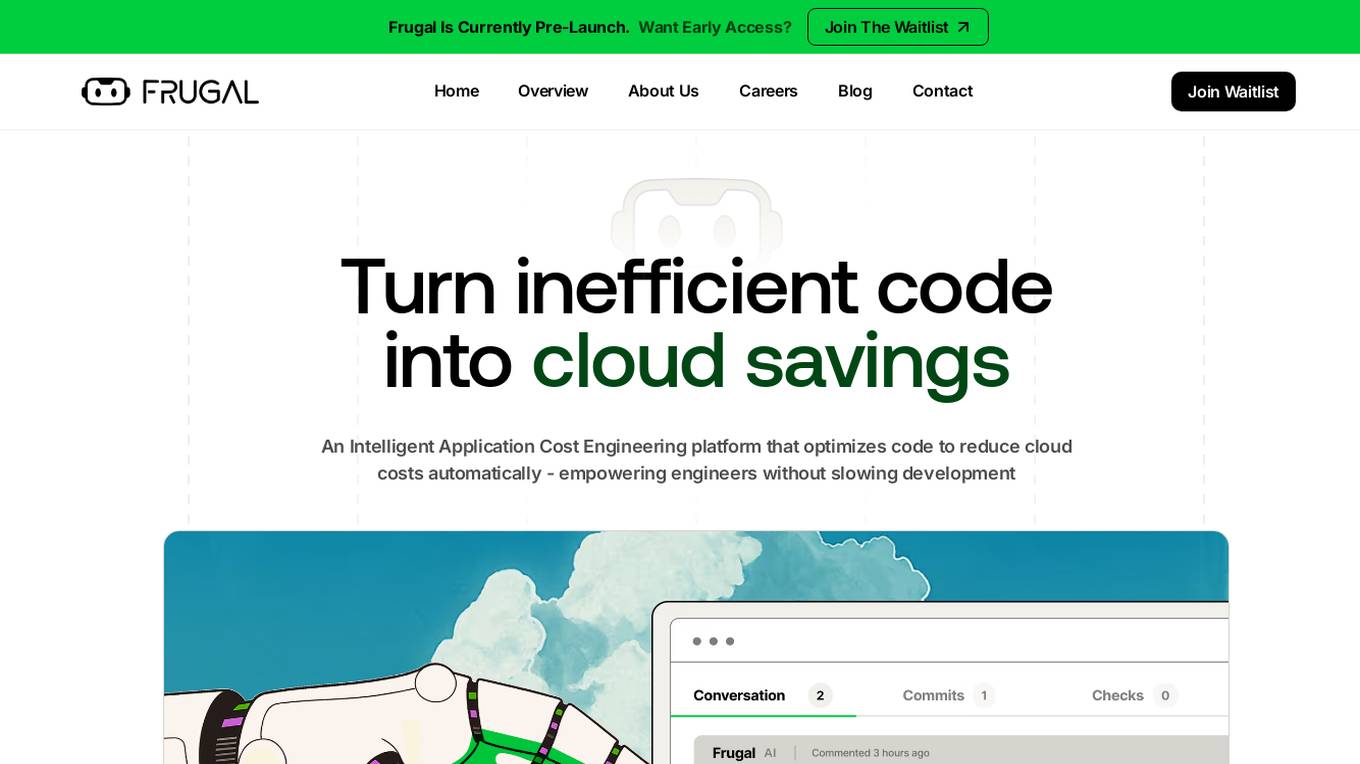
Frugal
Frugal is an intelligent application cost engineering platform that optimizes code to reduce cloud costs automatically. It is the first AI-powered cost optimization platform built for engineers, empowering them to find and fix inefficiencies in code that drain cloud budgets. The platform aims to reinvent cost engineering by enabling developers to reduce application costs and improve cloud efficiency through automated identification and resolution of wasteful practices.
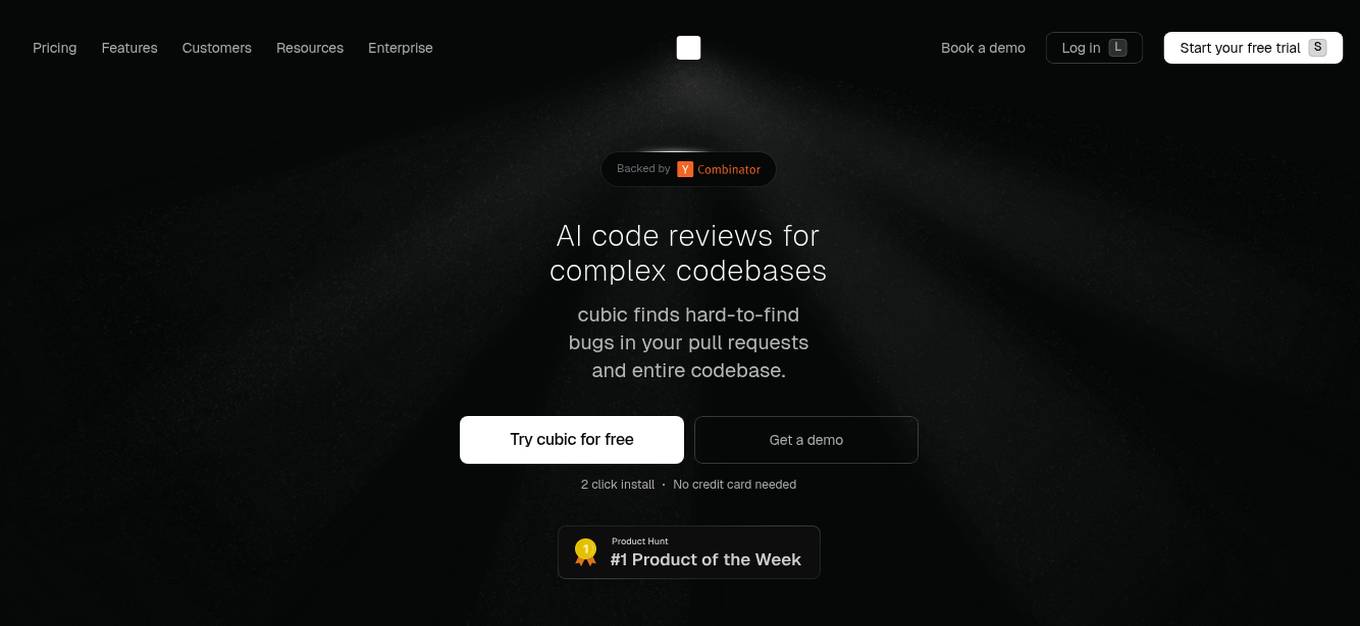
cubic
cubic is an AI-native code-review platform that leverages artificial intelligence to conduct code reviews for complex codebases. It helps teams identify hard-to-find bugs in pull requests and the entire codebase, providing context-aware feedback and summaries to enhance the review process. cubic continuously scans codebases for bugs and vulnerabilities, triages issues, enforces coding standards, and learns from team feedback to improve over time. The platform offers features like automatic PR descriptions, one-click issue fixes, intelligent diff ordering, and visualizing high-level changes. With a focus on security and privacy, cubic ensures that code remains secure and private by not storing or training AI on the code. It supports various programming languages and offers different pricing plans tailored to different team sizes and needs.
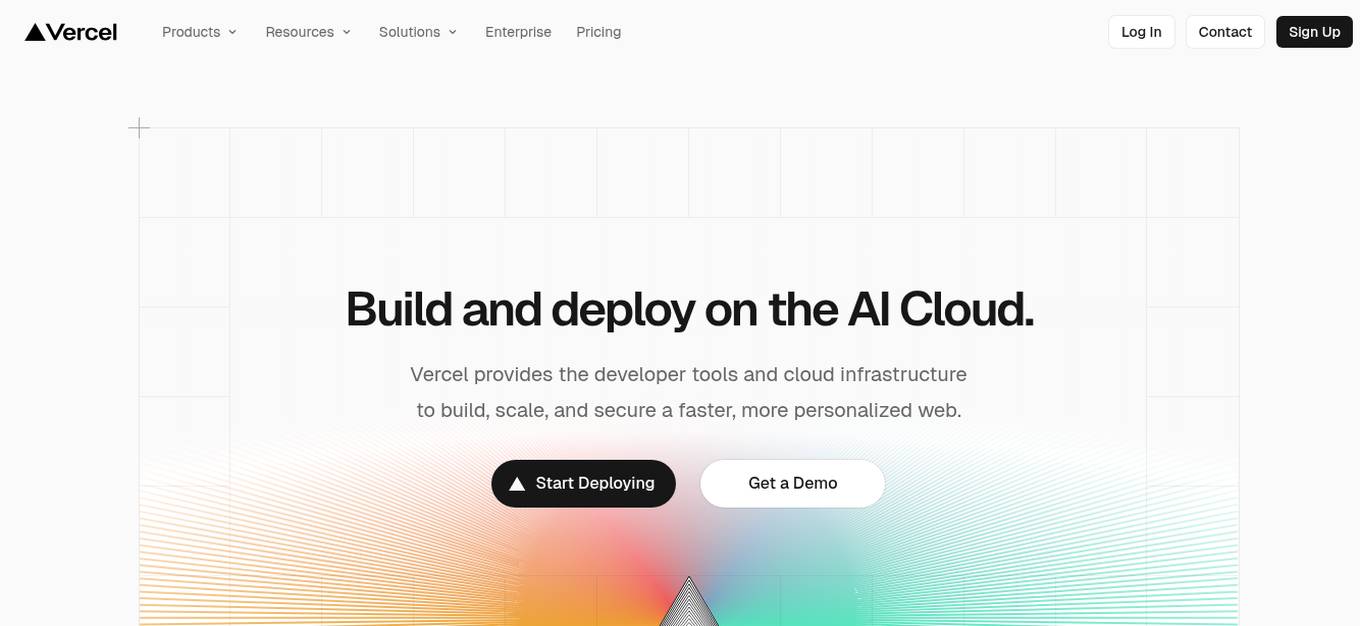
Vercel
Vercel is an AI-powered cloud platform that enables developers to build, deploy, and scale web applications quickly and securely. It offers a range of developer tools and cloud infrastructure to optimize performance and enhance user experience. Vercel's AI capabilities include AI Cloud, AI SDK, AI Gateway, and Sandbox AI workflows, providing seamless integration of AI models into web applications.
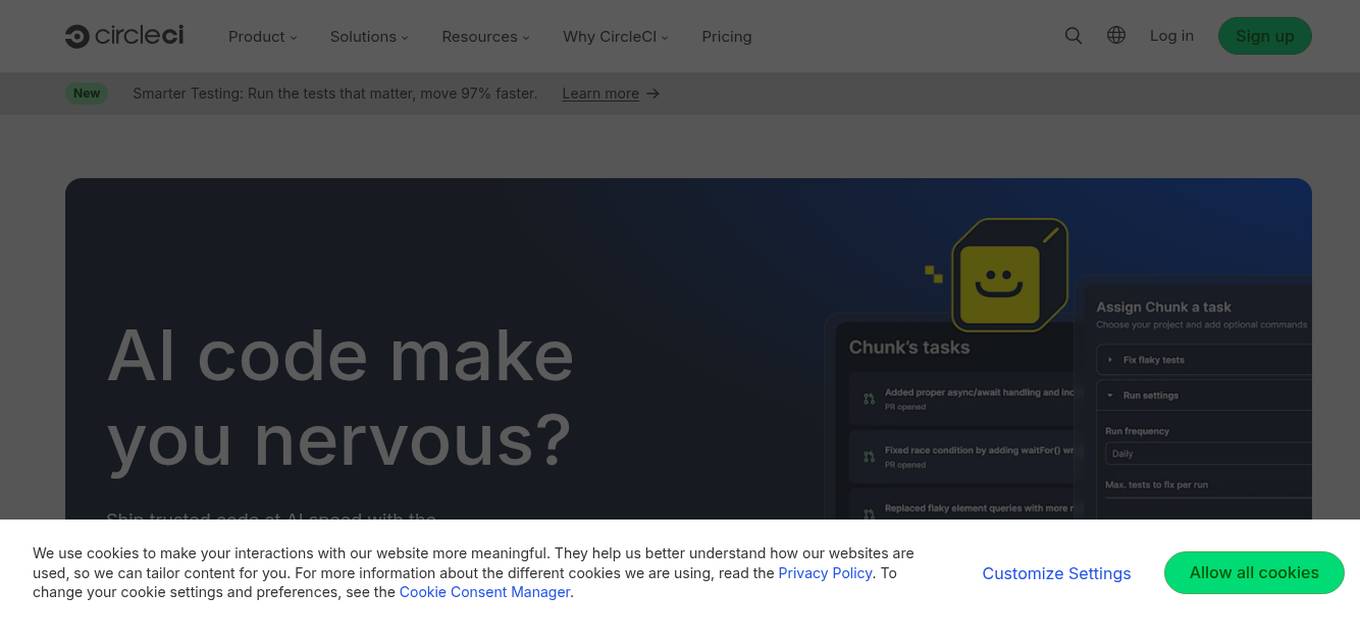
CircleCI
CircleCI is an AI-powered autonomous validation platform designed for the AI era. It offers intelligent automation and expert-in-the-loop tooling to deliver faster, more reliable software deployment with minimal human oversight. CircleCI enables developers to ship code at AI speed with enterprise-grade confidence, ensuring code is tested, trusted, and ready to ship 24/7. The platform supports various execution environments, integrations with popular tools like GitHub and AWS, and is trusted by leading companies like Meta, Google, and Okta.
0 - Open Source Tools
20 - OpenAI Gpts
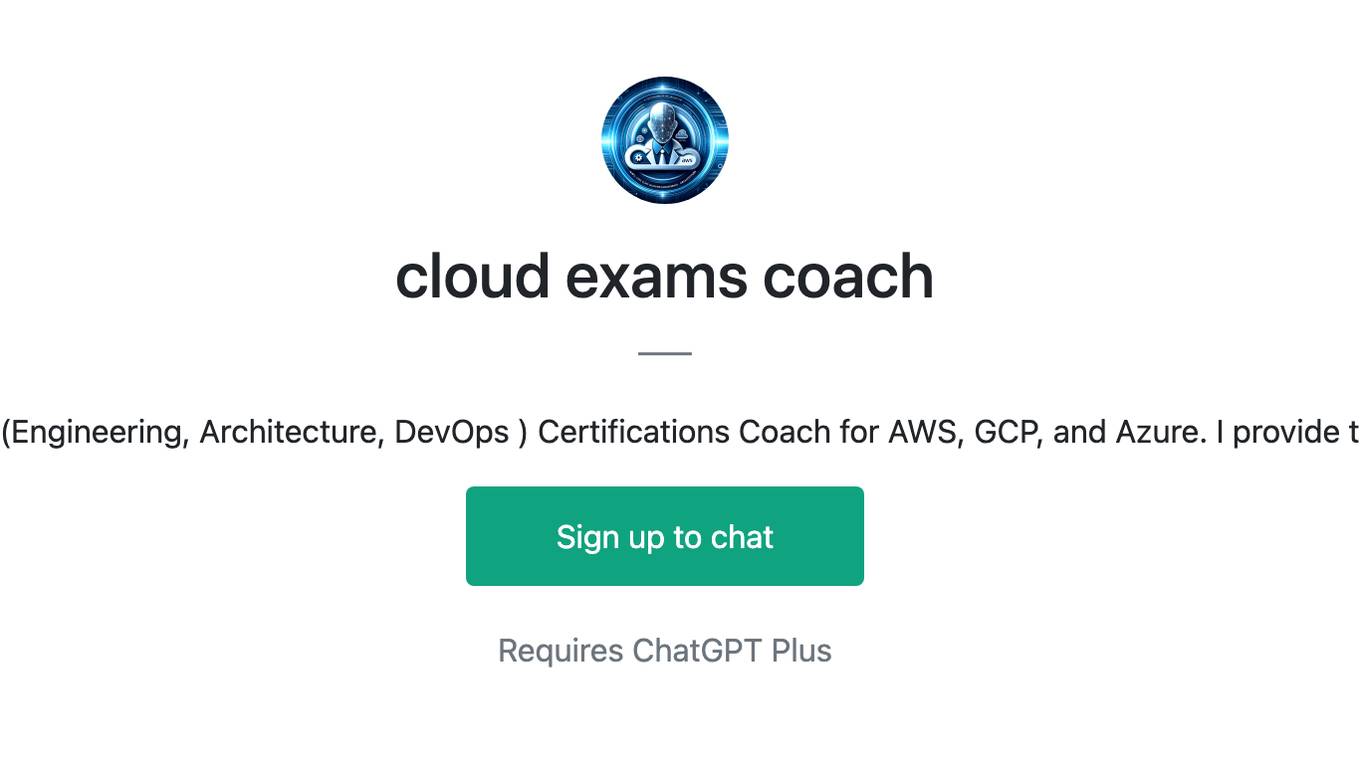
cloud exams coach
AI Cloud Computing (Engineering, Architecture, DevOps ) Certifications Coach for AWS, GCP, and Azure. I provide timed mock exams.
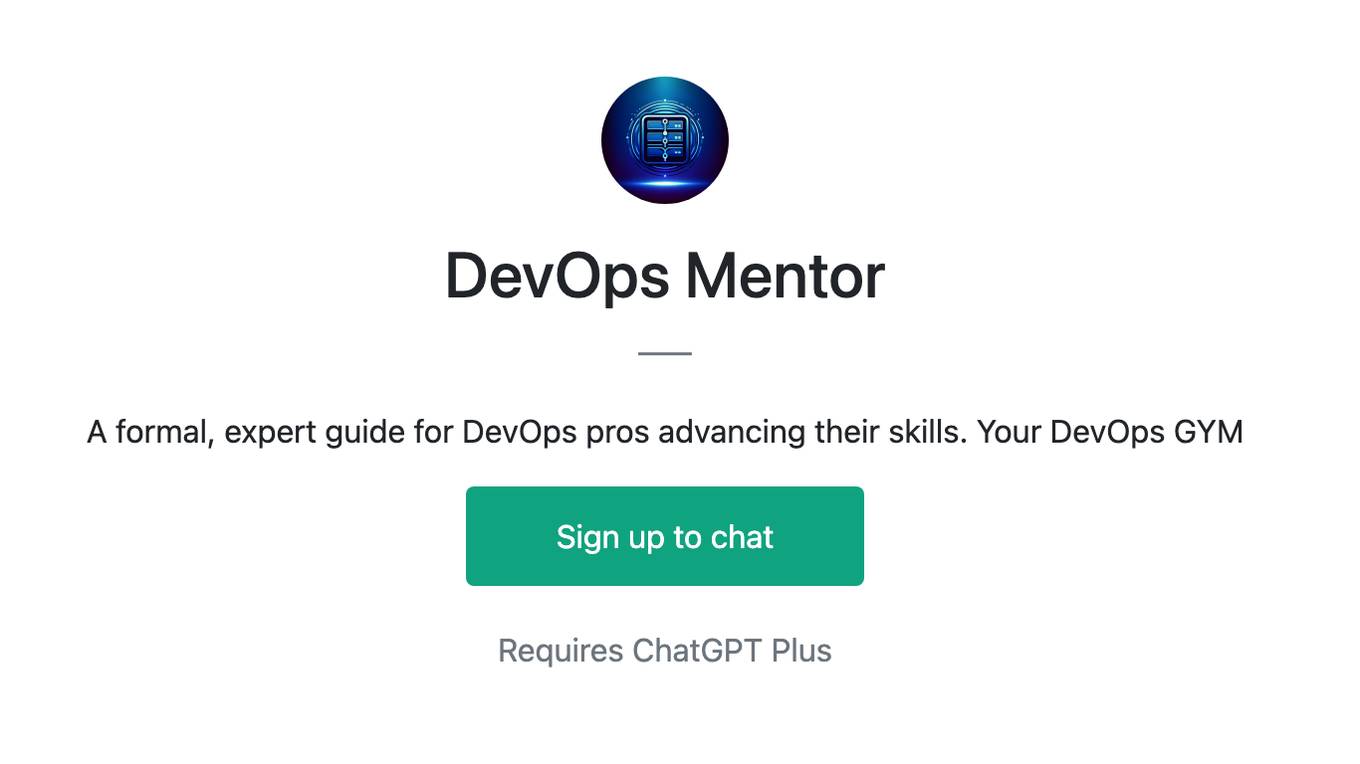
DevOps Mentor
A formal, expert guide for DevOps pros advancing their skills. Your DevOps GYM
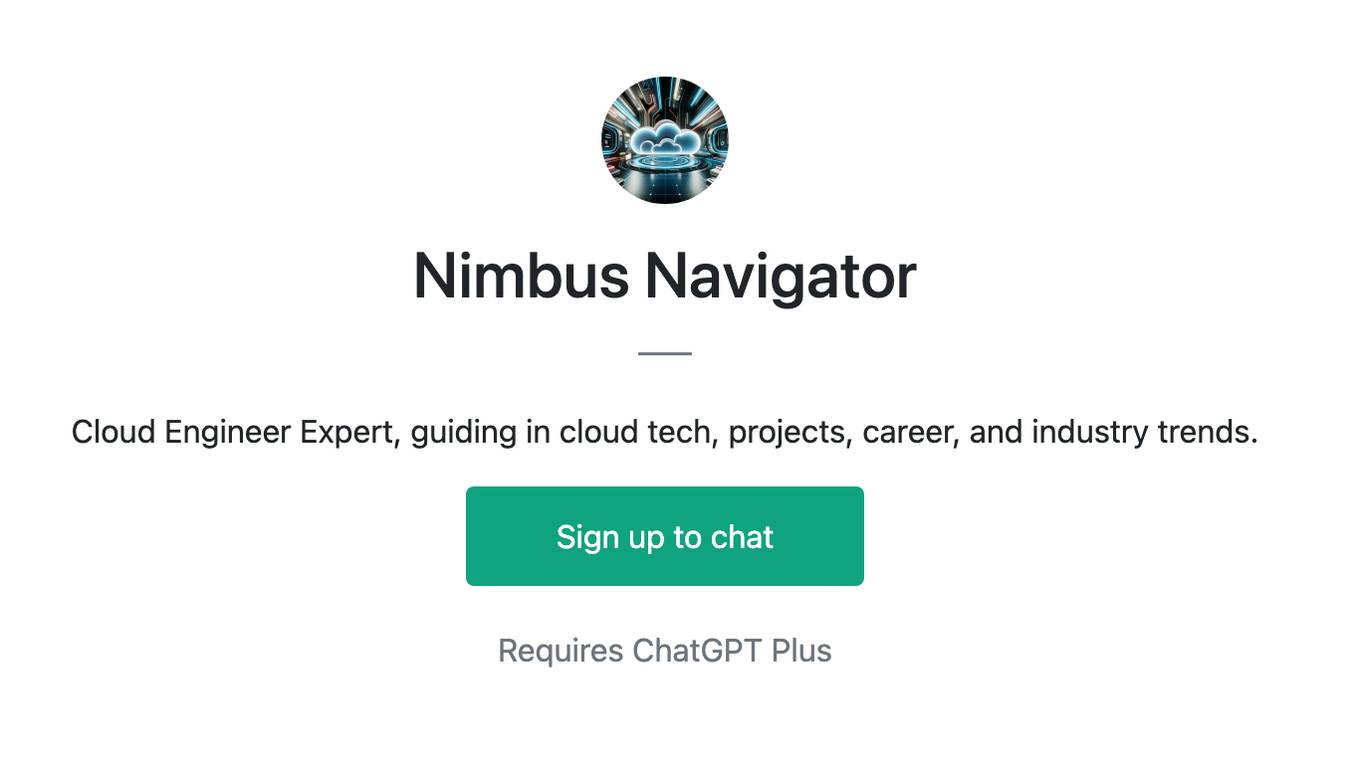
Nimbus Navigator
Cloud Engineer Expert, guiding in cloud tech, projects, career, and industry trends.
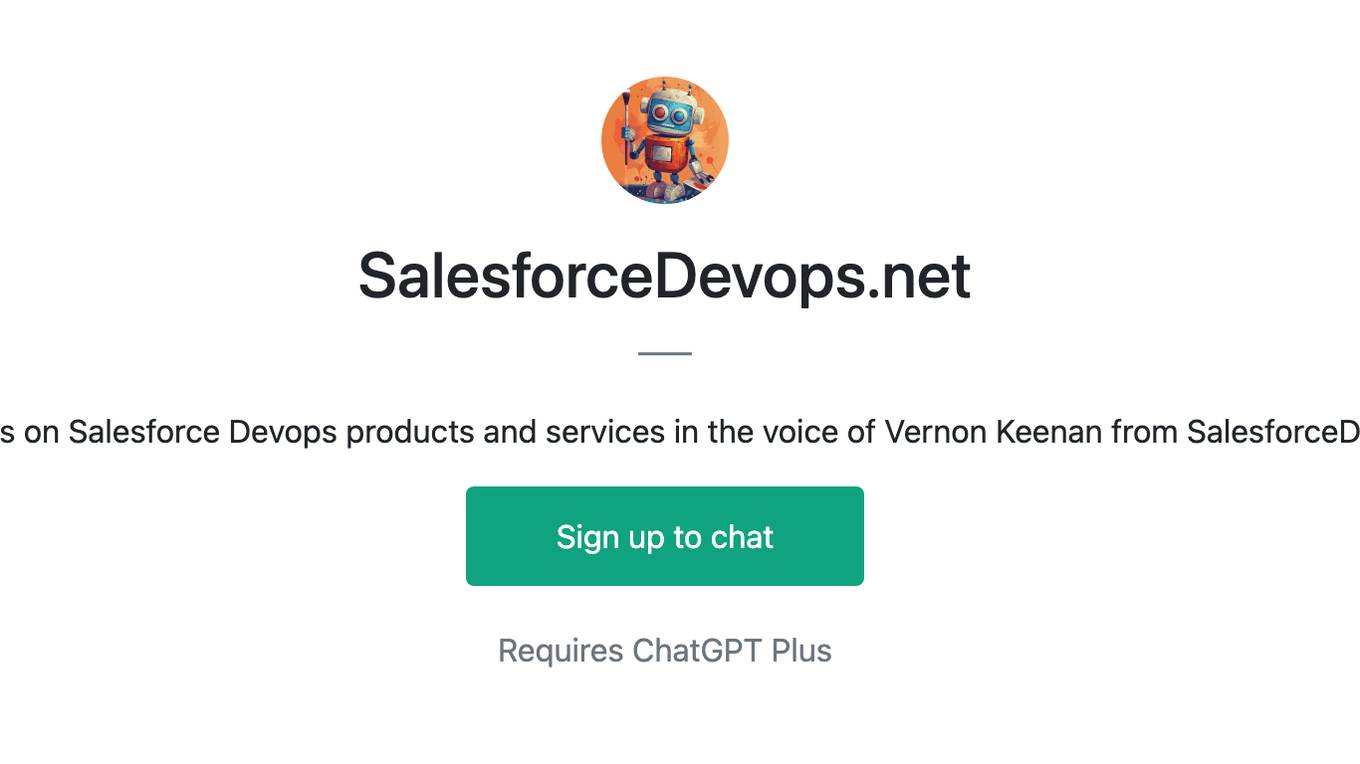
SalesforceDevops.net
Guides users on Salesforce Devops products and services in the voice of Vernon Keenan from SalesforceDevops.net
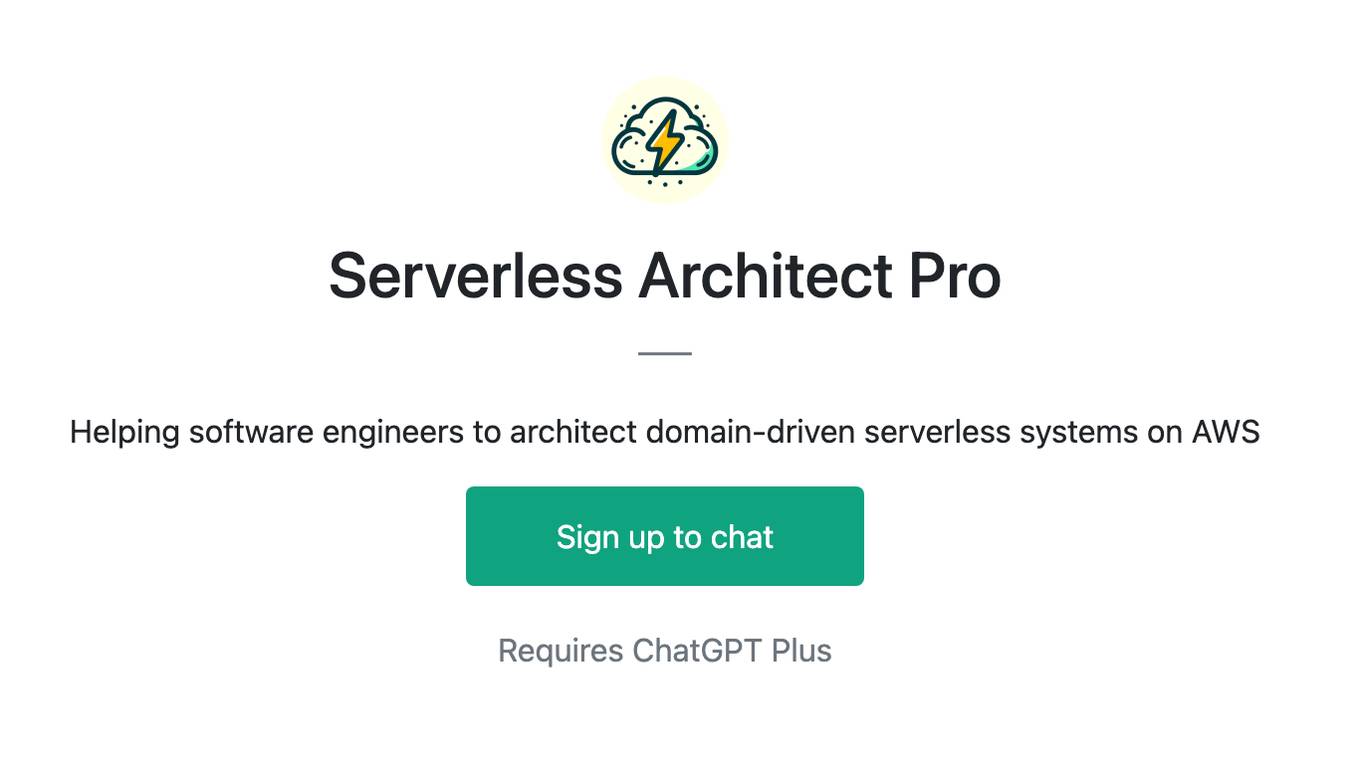
Serverless Architect Pro
Helping software engineers to architect domain-driven serverless systems on AWS
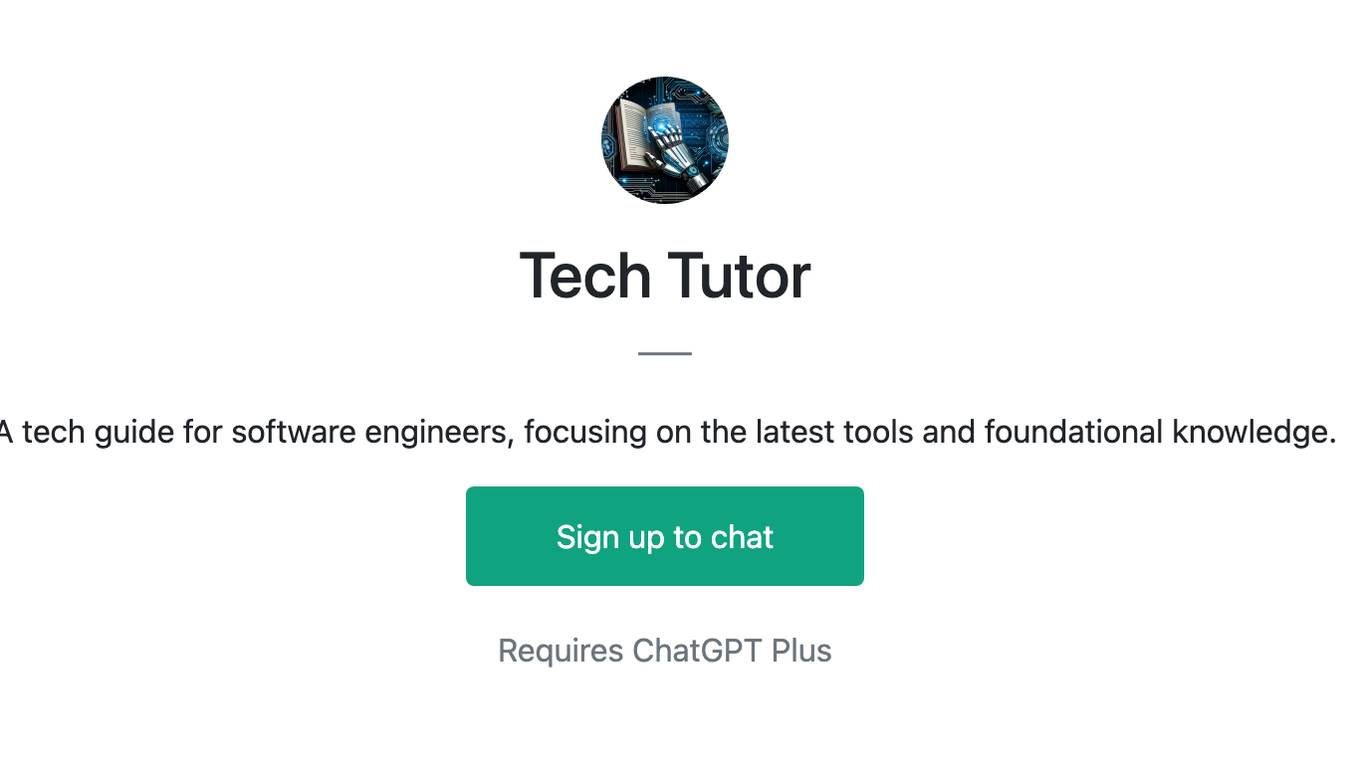
Tech Tutor
A tech guide for software engineers, focusing on the latest tools and foundational knowledge.
